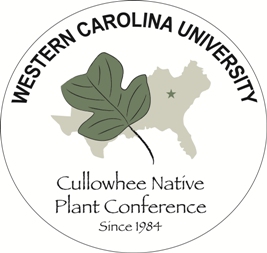Speaker Bios
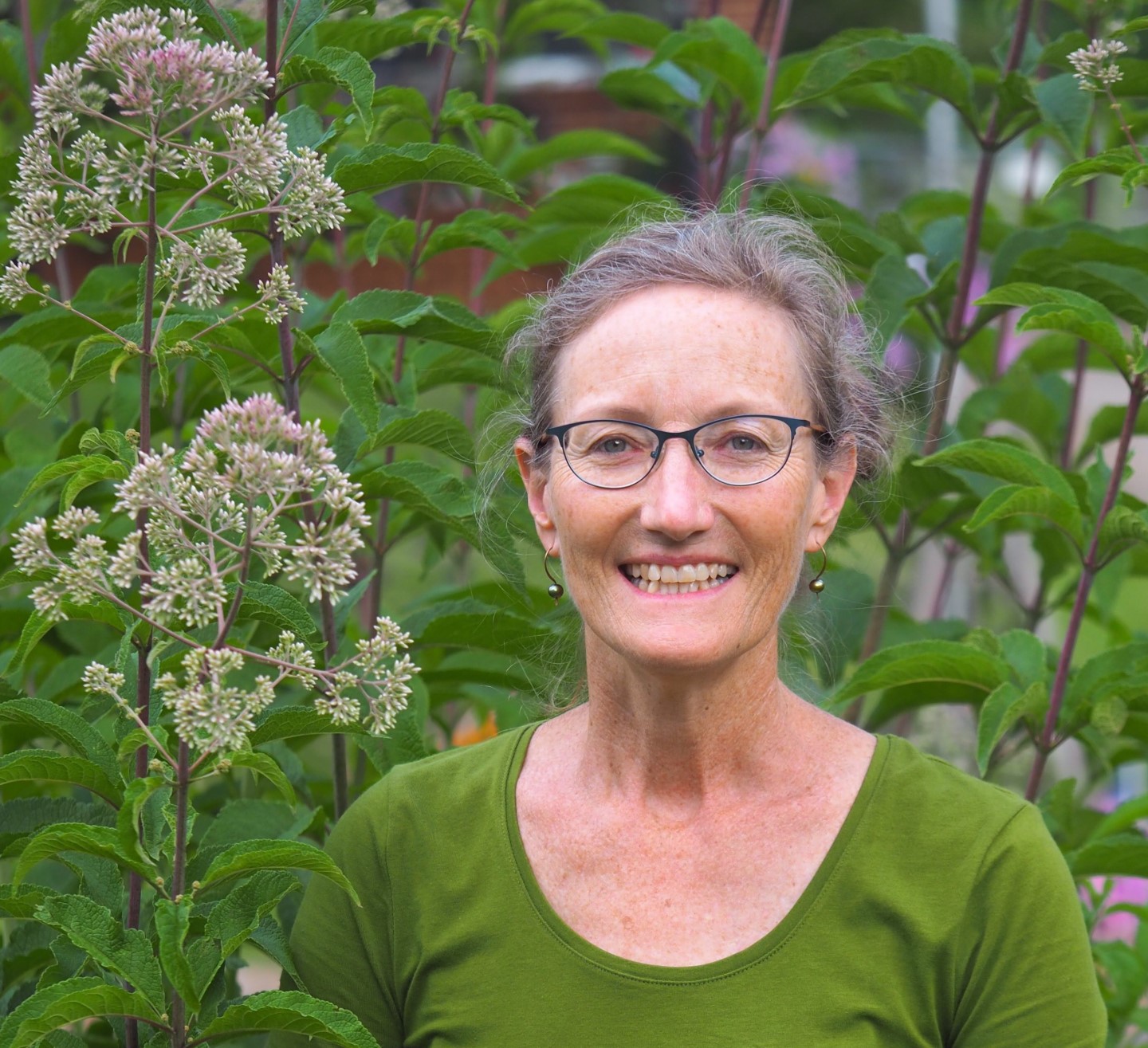
Nancy Adamson
Nancy is an ecologist interested in community connections between plants, people, pollinators, other wildlife, and the micro-organisms we all depend on. For many years she promoted habitat protection and creation with the Xerces Society and USDA NRCS while based in Greensboro, NC. She is currently the botany/ecology program manager for the South Zone of the Monongahela National Forest in Marlinton, WV. For a PhD in entomology (VA Tech) and MS in natural resources (UMD), she studied native bees and native grass establishment, respectively. Find her pollinator clips on YouTube c/o MelittologyNancy.
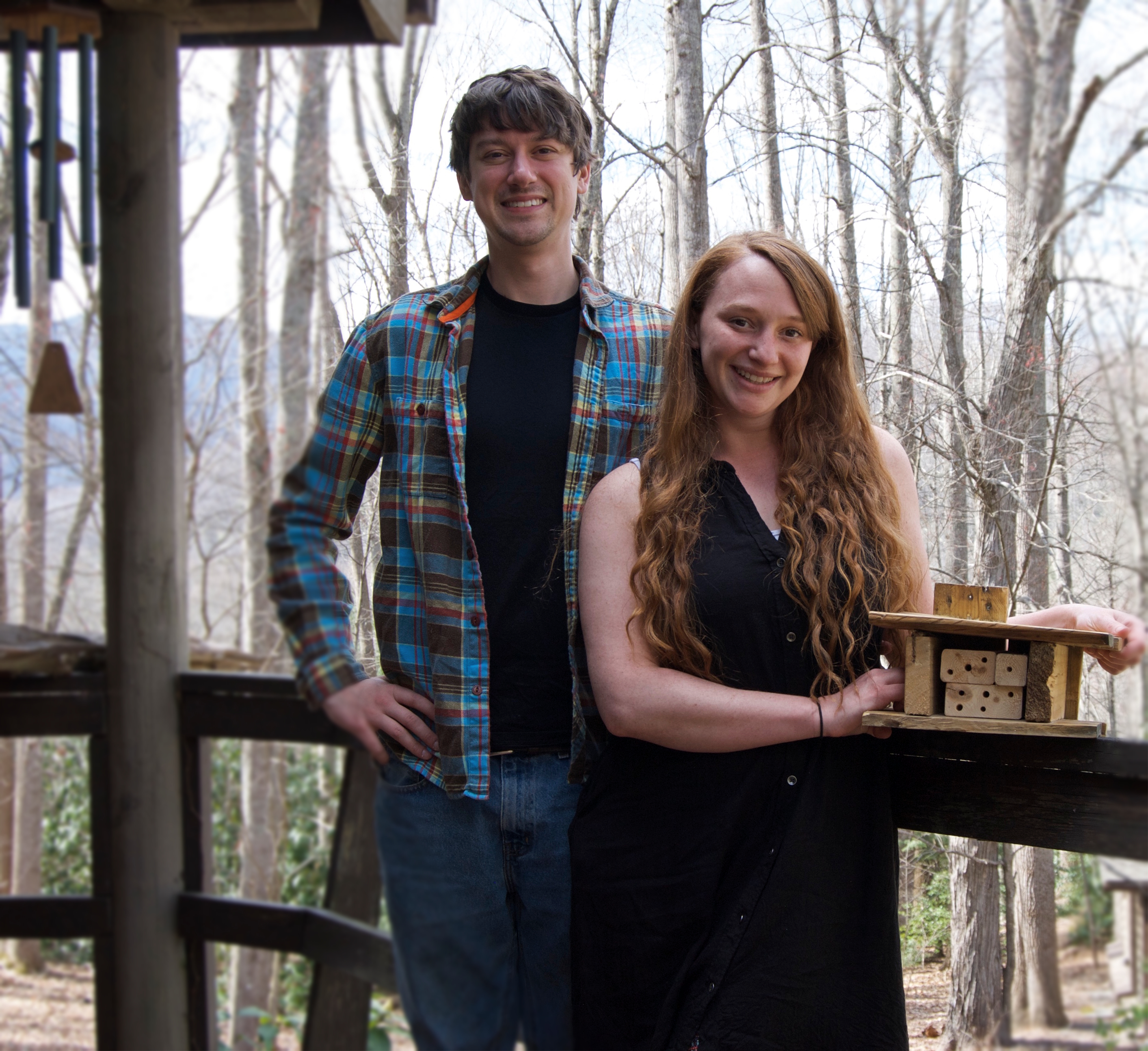
Brannen Basham & Jill Jacobs
Brannen Basham and Jill Jacobs are owners of Spriggly's Beescaping, a nature education and habitat restoration business with a special focus on native plants and native pollinators. On the habitat restoration side of their business, they offer in-person and online consultation services for wildlife-focused sustainable landscaping, full-scale 2D and 3D design, and on-site implementation when available. On the nature education side, they offer a variety of educational courses, both in-person and online, including a 16+ hour on-demand video series called Gardening for the Planet. Their Native Plant Conference course will be a condensed version of that content, which covers everything from attracting pollinators, to integrative pest management, to tackling drainage issues. In addition, they create nature-based interpretive exhibits and informational signage and have published two books with more on the way. In addition, Brannen serves as the resident nature writer for the Sylva Herald.
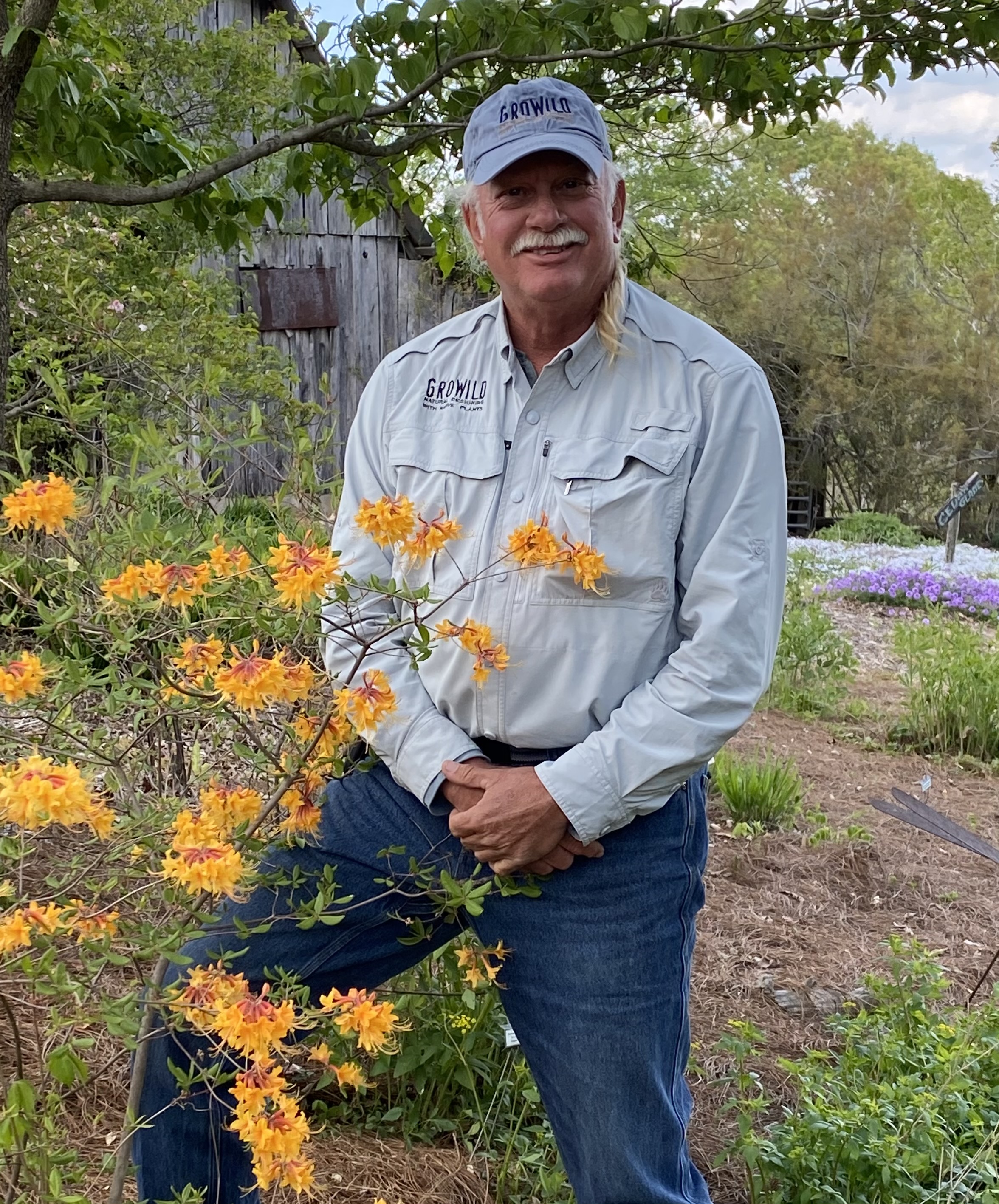
Mike Berkley
Mike Berkley describes himself as a plantsman and nurseryman who was into natives
before natives were cool. With over 40 years in the industry, Mike has dedicated
the last 29 years to his love for all things native. As co-owner of GroWild, Inc,
a native plant nursery & landscape design firm in Fairview, TN, Mike has spread his
joy in over 35 State & Federal parks, countless homeowners, in commercial development,
and even rooftops (one was for a president!).
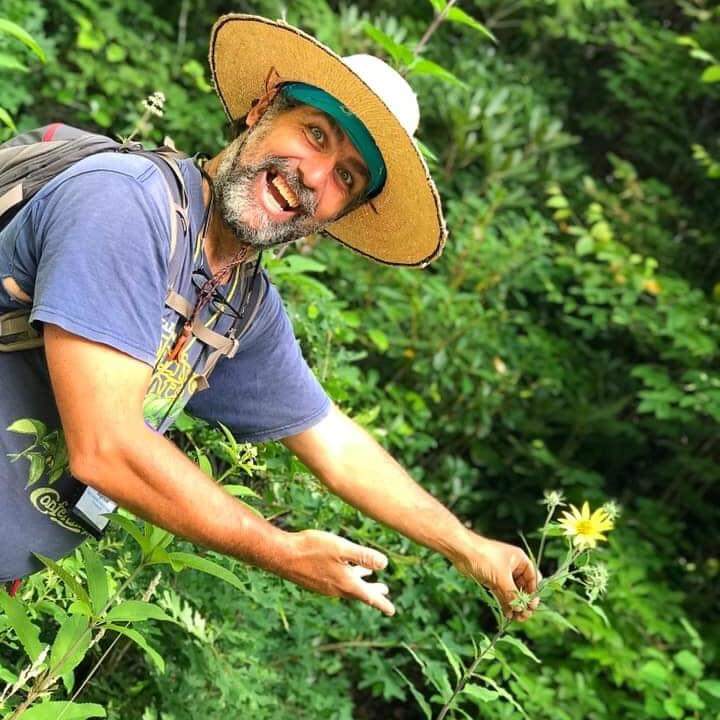
Adam Bigelow
Adam Bigelow is a horticulturist and amateur botanist who lives in Cullowhee, NC, and has been studying the plants and wildflowers of Southern Appalachia for over 20 years. Adam is the owner/operator of Bigelow’s Botanical Excursions, an eco-tour business leading guided plant walks in WNC. He is an avid organic gardener and founded and managed the Cullowhee Community Garden for ten years. Adam is a member of the planning committee for the Cullowhee Native Plant Conference and has attended the conference for many years.
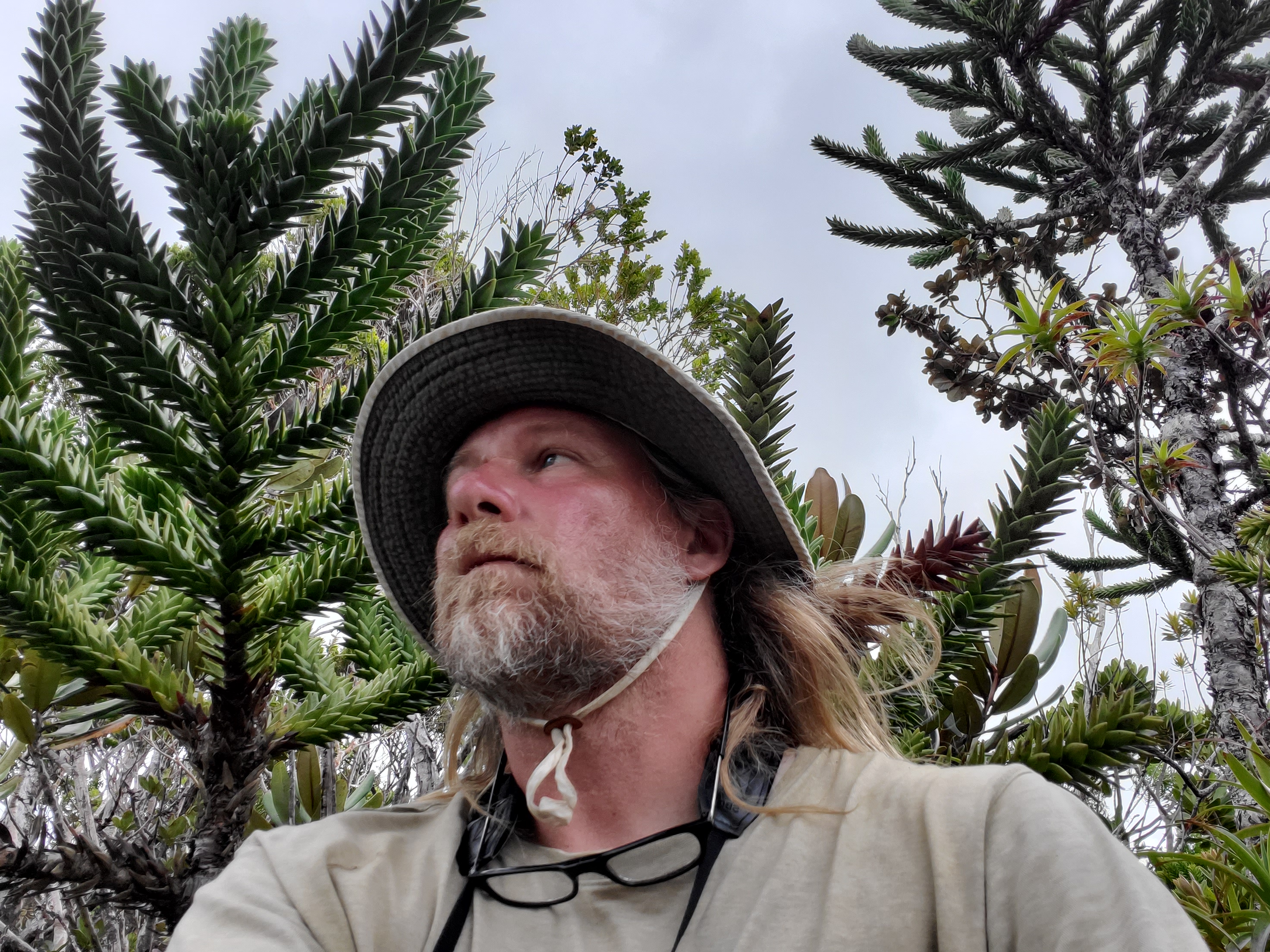
Adam Black
Adam Black is currently the Director of Horticulture and Plant Conservation at Bartlett Tree Research Laboratories and Arboretum in Charlotte, NC. A former resident of both Texas and Florida, he is active with collaborative ex-situ conservation of imperiled plant species throughout much of the southeastern US. He furthermore has been involved in field work and plant explorations in New Caledonia, Taiwan, The Philippines, South Africa and Uruguay.
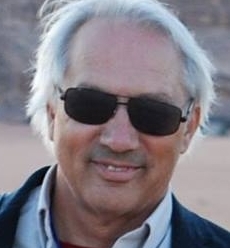
Bob Brzuszek
Bob Brzuszek is professor emeritus of landscape architecture at Mississippi State University and was the first Curator at Mississippi’s premier native plant conservatory, The Crosby Arboretum. Bob is now owner/designer of his landscape consulting firm The Artful Gardener, which specializes in designing southeastern native plant gardens. Bob is past president of the Mississippi Native Plant Society and helped create the Mississippi State Extension sustainable landscape program called Mississippi Smart Landscapes
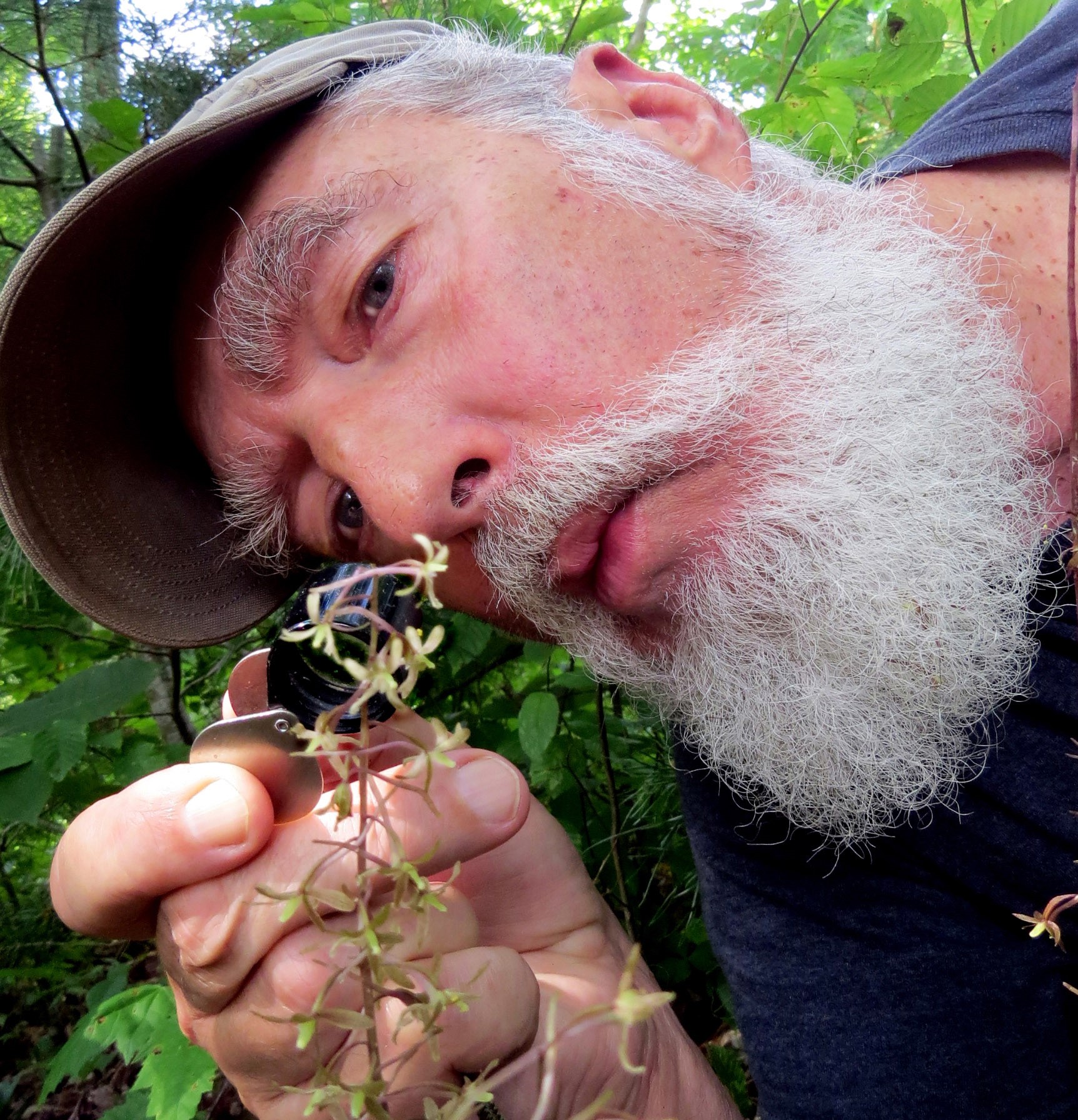
Randy Burroughs
Randy is a horticulturist and landscape architect very curious about high elevation native plant communities. The pioneering works of Whittaker, Suzanne Simard, EO Wilson, Tom Wessels, Doug Tallamy, etc have opened new fields for me/us to explore. “I’ve hiked the Great Balsam Mountains since 1980, inspired by its natural beauty, diversity, uniqueness and the remarkable lessons of its history and rejuvenation. Now retired, I propagate native grasses, ferns, mosses and lichens; and volunteer with the USFS repelling the waves of invasive exotic plants in the Black and Snowball Mountains near my home. Research continues.”

Owen Carson
For the past 13 years, Owen Carson has been a professional botanist/plant ecologist Equinox, an Asheville-based consulting firm, where he uses his knowledge to conduct biological inventories on land proposed for conservation, inform ecologically appropriate design, and enact landscape-scale conservation planning projects including state parks, watersheds, and master plans for large-acreage properties. While Owen has an affinity for the Southern Appalachian Mountains and the wealth of biodiversity they support, he is also intrigued by adjacent ecosystems in the Foothills and Piedmont, such as glades, barrens, grasslands, and savannas. An Atlanta native, he now lives in Brevard, NC, where he and his wife, Sarah, and twins Liam and Hazel, enjoy spending time on the French Broad River, exploring Pisgah NF and DuPont State Forest, growing native plants, cooking, and so much more. In his limited free time, Owen enjoys fishing tenkara on blueline streams, always in search of native speckled char.
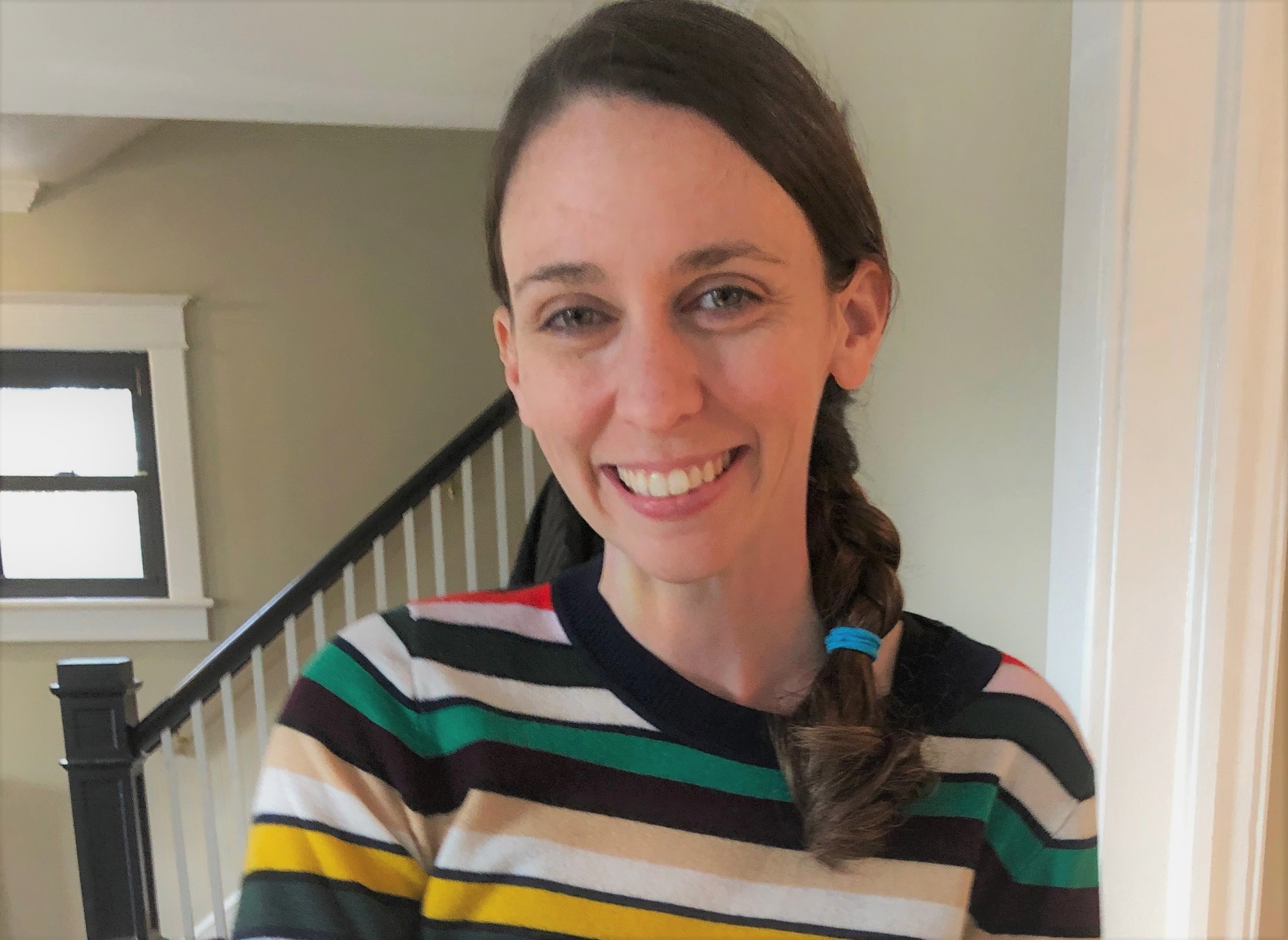
Erin Cord
Erin Cord joined the BCI staff in 2019 and is proud to be doing community engagement work on behalf of the organization. Erin double majored in Wildlife Conservation and Entomology from the University of Delaware and received her MS in Wildlife Ecology from the Cesar Kleberg Wildlife Research Institute at Texas A&M University-Kingsville. She has over 10 years of experience working as a wildlife biologist and running environmentally-focused volunteer, outreach, and education programs. Erin is happiest working at the intersection of science communication and citizen empowerment. She loves working outside and getting people excited about environmental stewardship and wildlife conservation.
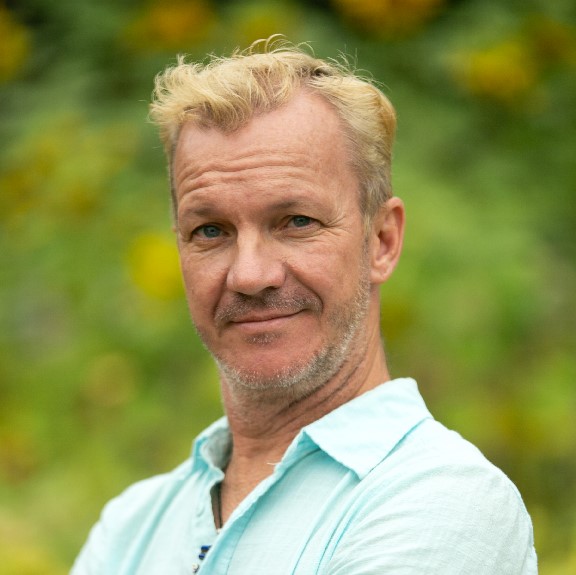
Tradd Cotter
Tradd Cotter is a best-selling author (Organic Mushroom Farming and Mycoremediation, Chelsea Green, 2014.), microbiologist, professional mycologist, former landscape designer, and organic gardener, who has been collecting and tissue culturing native fungi in the southeast and cultivating commercially and experimentally for thirty years. In 1996 he founded Mushroom Mountain which he sold in 2021 to pursue travel and research interests in Jamaica and Costa Rica. Tradd also operates several daughter companies designed to delve deeper into specific applications with fungi in various industries. Cotter currently maintains over 300 species of fungi for food production, antibiotics, mycoremediation of environmental pollutants, and natural alternatives to chemical pesticides. Mr. Cotter is an EPA Fellowship Recipient and was Awarded Entrepreneur of the Year by Clemson University as a student in 2013.
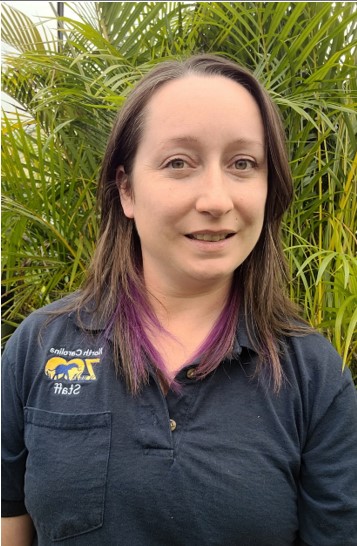
Katie Davis
Katie is currently the nursery and greenhouse supervisor at the world’s largest natural habitat zoo, North Carolina Zoo in Asheboro. She previously spent over a decade working in the private sector of the wholesale native plant industry focusing on wetland restoration and public outreach. Katie has channeled that experience into promoting plant conservation efforts in the beautiful environment of the Uwharrie National Forest and within the niche field of Zoological Horticulture.
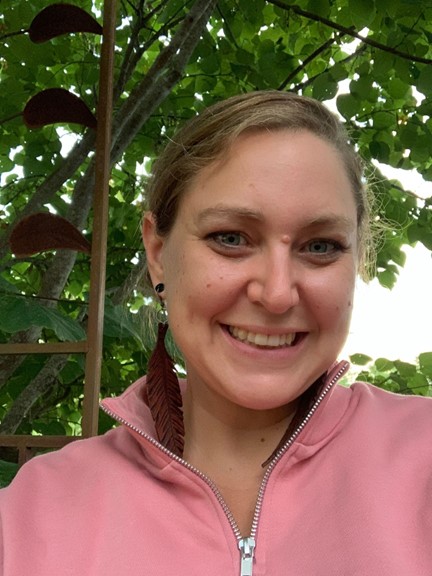
Emily Driskill
Emily Driskill is an alumna of The Evergreen State College where she earned a B.A./B.S. with concentrations in Botany and Sustainable Agriculture. Through her many seasons of botany fieldwork in the Pacific northwest, the western Rockies, the southern Appalachians, and the mid-Atlantic coastal plain, she has gained a loving familiarity with native plants and their roles in the ecosystem. Emily has professional propagation experience as the former nursery manager at Carolina Native Nursery and is currently the founder and head grower at Tanager Plants LLC, a native plant nursery. In addition, she co-owns and designs for Blackbird Landscapes LLC in Mars Hill, NC.

Thomas Easley
Dr. Easley is the child of civil rights activists who protested in the children’s march in 1963 at the height of the Civil Rights movement and integrated an all-white school in Toledo, Ohio. Dr. Easley was the inaugural Assistant Dean of Community and Inclusion at the School of the Environment at Yale University and the inaugural Dean of Community and Inclusion at North Carolina State University. Dr. Easley has attended Alabama A&M University for his Bachelor’s degree, Iowa State University for his Master’s degree, and North Carolina State University for his Doctorate. Dr. Easley has backgrounds in forestry, genetics, and adult education. Dr. Easley is a certified diversity, equity, and inclusion consultant who works with academic institutions, corporate entities, and other organizations to help them actualize a strong diversity initiative that welcomes everyone and shifts work culture to be equitable. Dr. Easley is a musical artist, professor, Eagle Scout, and a former campus pastor. He intentionally merges conscious lyrics, ecumenical spirituality, land stewardship, education, diversity/equity/inclusion principles, and entrepreneurial thinking in his lectures, workshops, and presentations.
Dwayne Estes
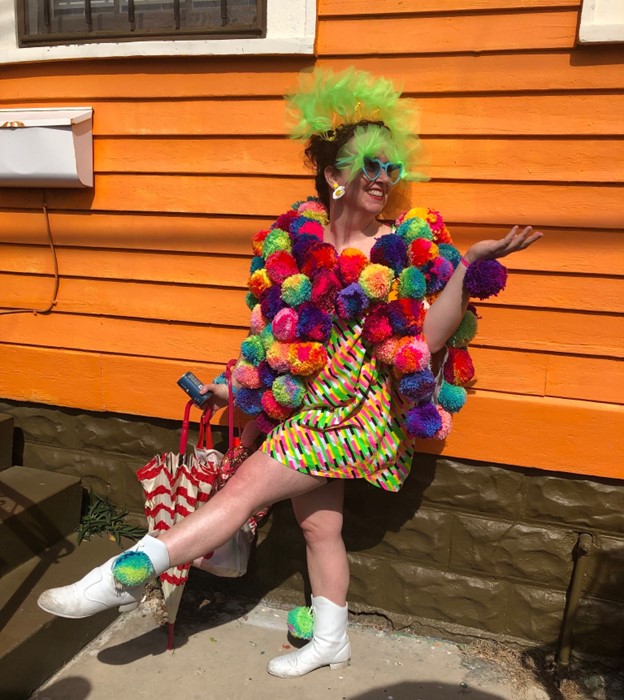
Elizabeth Evans
Elizabeth is a lifelong crafter, repurposer, and plant enthusiast. She is always looking for ways to turn trash into something useful, fun, and beautiful.
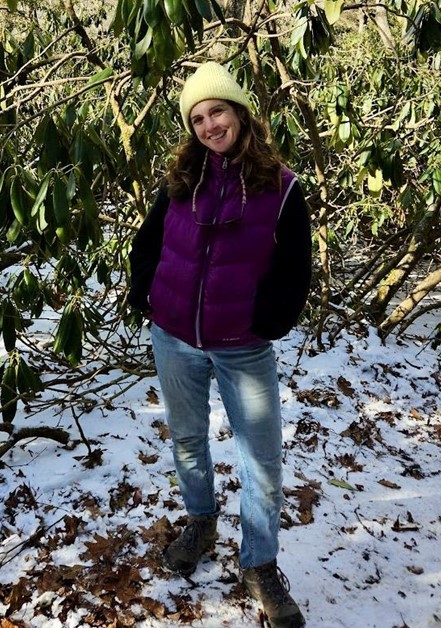
Cheryl Geiger
Cheryl is a horticulturist, landscape designer, and owner of Secret Garden Landscapes based in New Orleans, Louisiana. The ecological sciences guide her approach to gardening, with 20 years experience in horticulture and environmental conservation, including 10 years working in western North Carolina. She further promotes the mission of building ecologically functional landscapes through education and community outreach, serving as board member for the Native Plant Initiative of Greater New Orleans.
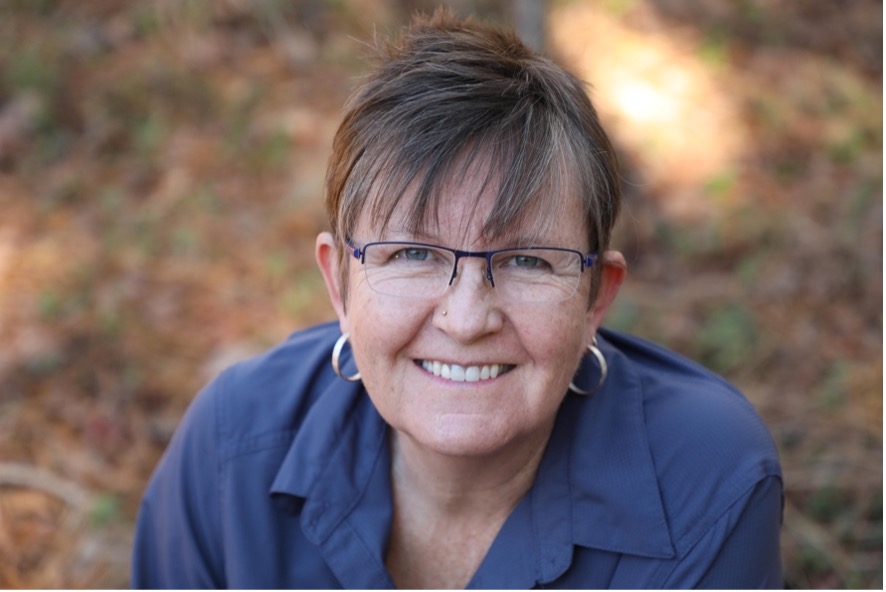
Heidi Hannapel
Heidi is co-founder and co-director of the nonprofit Bluestem Community NC, a novel community centered nature preserve designed as a place of reverence with a conservation cemetery, located in Cedar Grove, NC. Heidi is also co-founder of LANDMATTERS, a multidisciplinary consulting firm that champions healthy communities in sustainable landscapes and specializes in conservation burial. A former Land Trust Alliance staffer, Heidi designed regional conferences, and developed communications and outreach strategies for the land trust community in the southeast. Heidi is a founding member of the Conservation Burial Alliance.
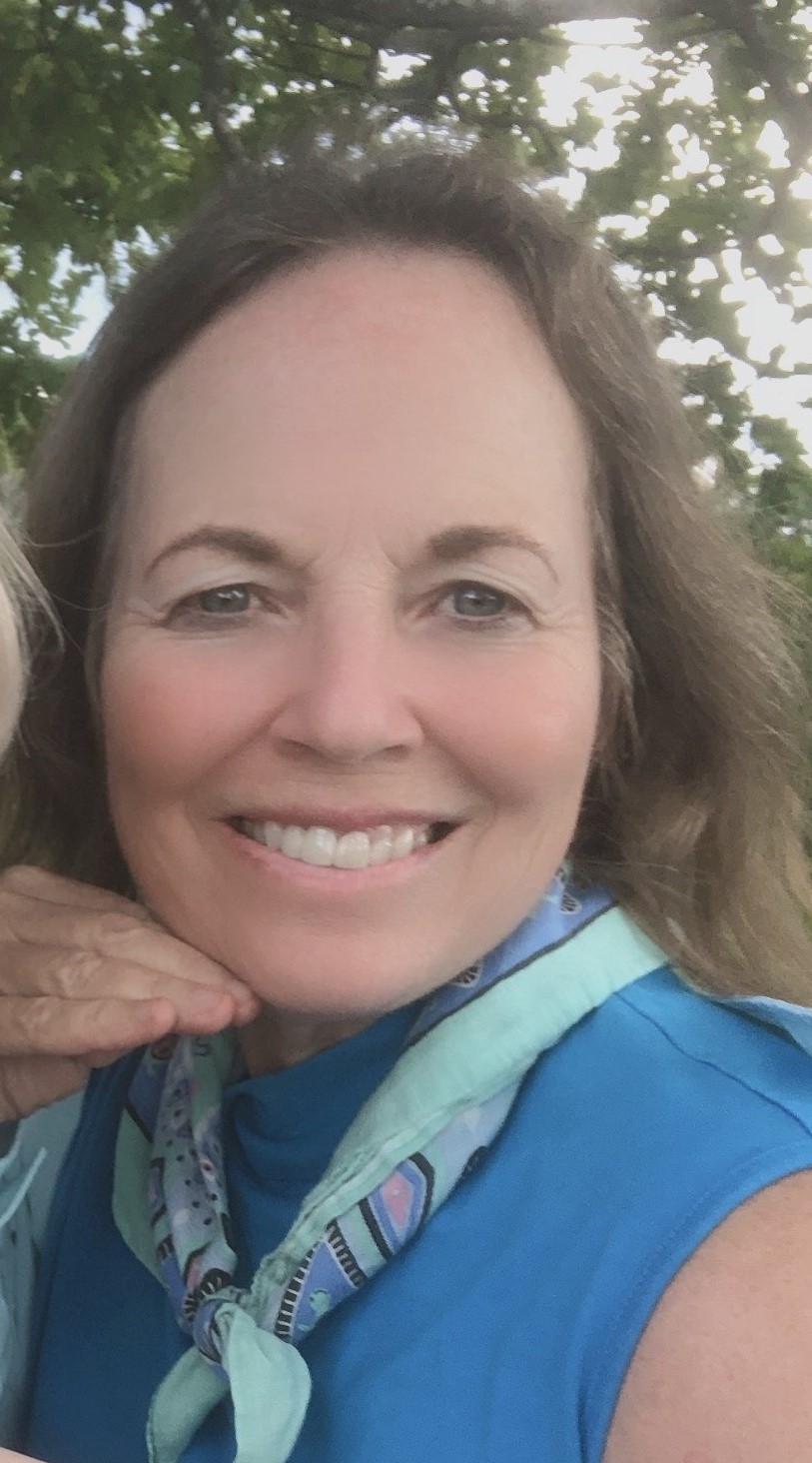
Karin Heiman
Karin was born with a curiosity and fascination with nature which she has translated into her career. She has been involved with environmental work for nearly every type of federal and state agency, including state Departments of Transportation, USDA, National Park Service, USFS, US Fish & Wildlife Service, National Institute of Health, EPA, US Army COE, USAF, state Natural Heritage Programs, and numerous universities, land trusts and engineering firms. Conservation work with land trusts has been a main focus. When she stumbled upon lichens in college, she was blown away by them and has been fascinated ever since (including that she will soon have a genus named after her).
Sally Heiney
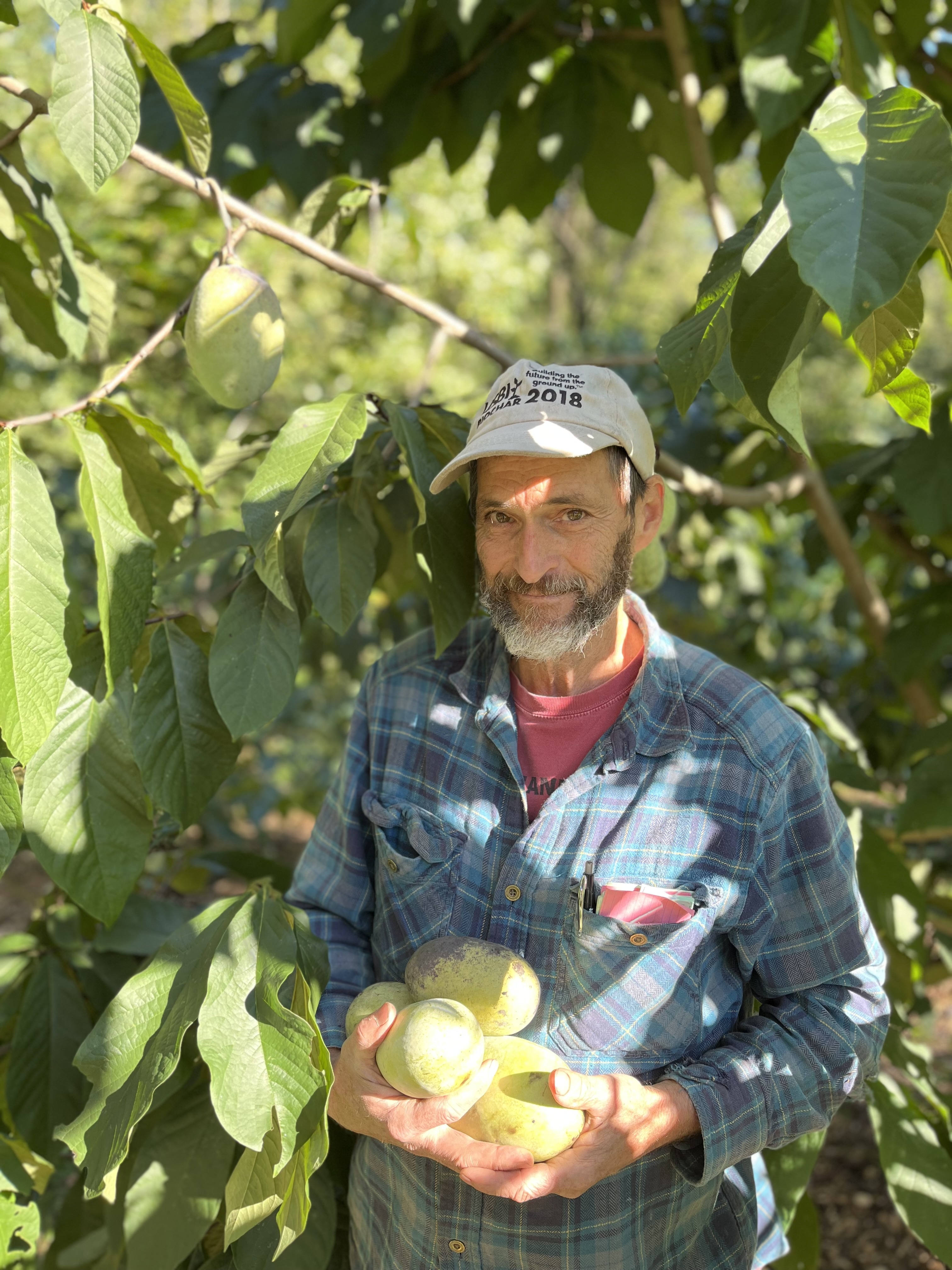
Dale Hendricks
Dale has been honored with the several national awards, teaches and lectures widely. He served on the founding board of the Sustainable Business Network of Greater Philadelphia and as co-chair from 2004-2007. He also served on the founding Steering Committee with the Native Plants in the Landscape Conference at Millersville University in Pennsylvania. He has been a permaculture and biochar advocate and practitioner since ’09 and has presented workshops and demonstrations in the east and Mid-Atlantic States since that time. He lives in Landenberg, southern Chester County, Pa with his family, tends to his grandchildren, gardens, propagates plants, and works on rewilding- growing the productivity, diversity, capacity and resilience of the land.
Heather Holm
Kelly Holdbrooks
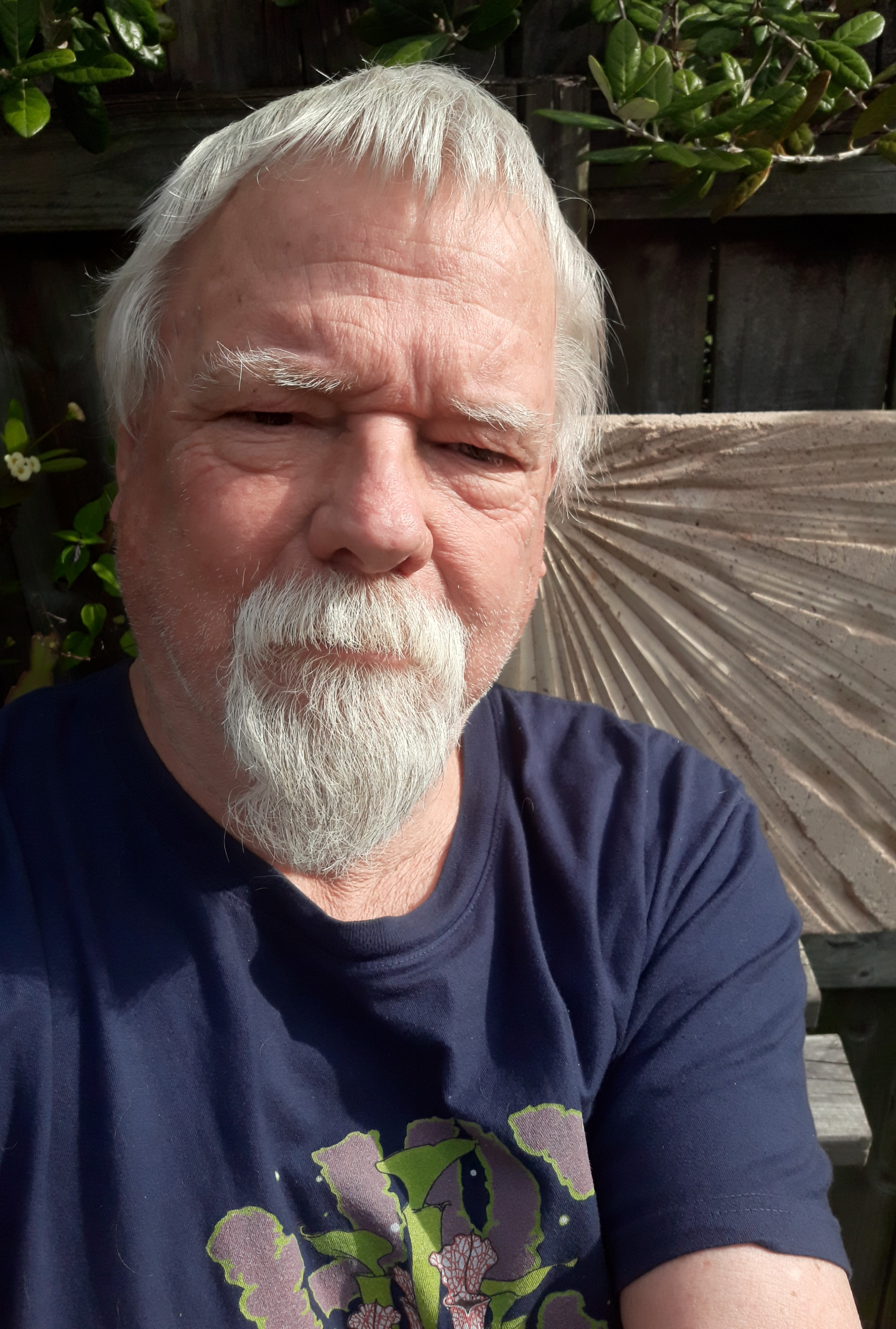
Jeff Jackson
Jeff Jackson was raised in the Lowcountry of South Carolina. His love of the outdoors led him to Clemson University and a BS in Horticulture in 1981. Since then, he has been a practicing landscape designer and horticulturist, with a flair for hardscape design incorporating the materials prevalent in local history. He has also focused on native botany and environmental work for the last 30 years.
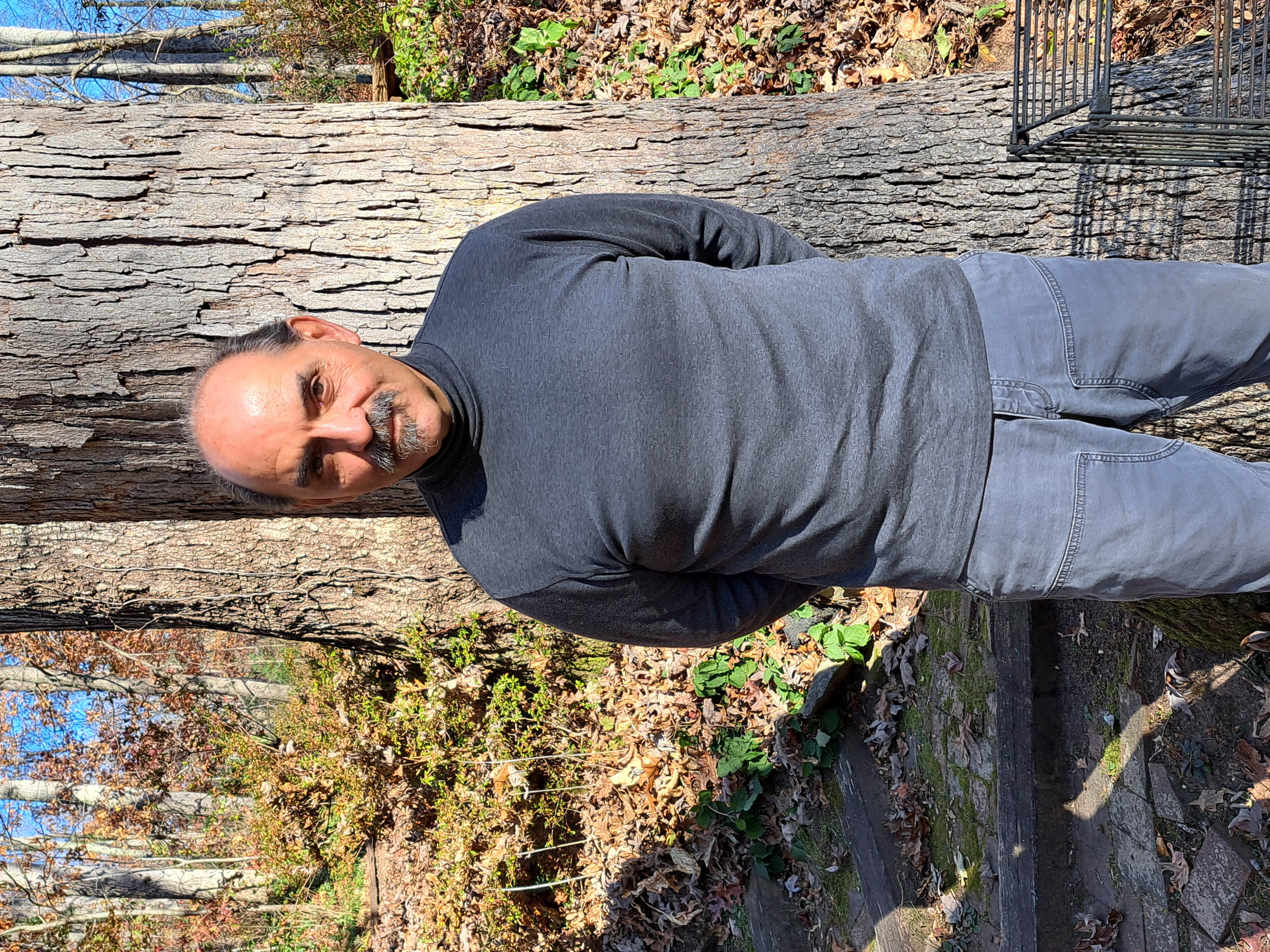
Gary Kauffman
Gary has been the botanist/ecologist program manager for the National Forests in NC (NFsNC) since April of 2007. The NFsNC cover 1.3 million acres across 4 forests, the Nantahala and Pisgah NFs in the mountains, the Uwharrie NF in the Piedmont, and the Croatan NF in the Coastal Plain. Gary has been with the USFS since 1992, all in NC, working as a botanist, analyzing sustainability of harvested botanical products such as ginseng,recommending restoration of rare plants and communities, and updating forest plant revisions.He has a master’s degree in botany and has lived in western NC for the last 37 years.
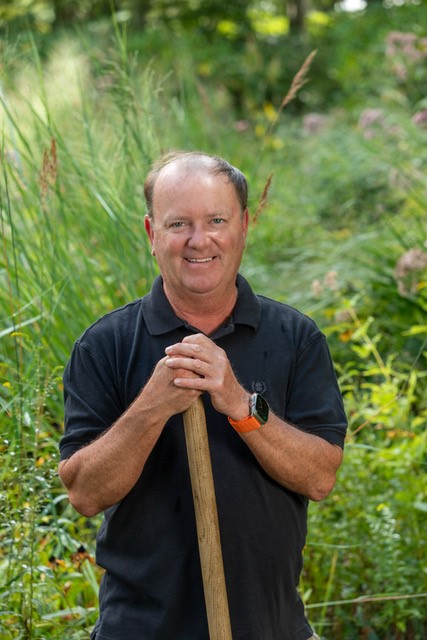
Eric Kimbrel
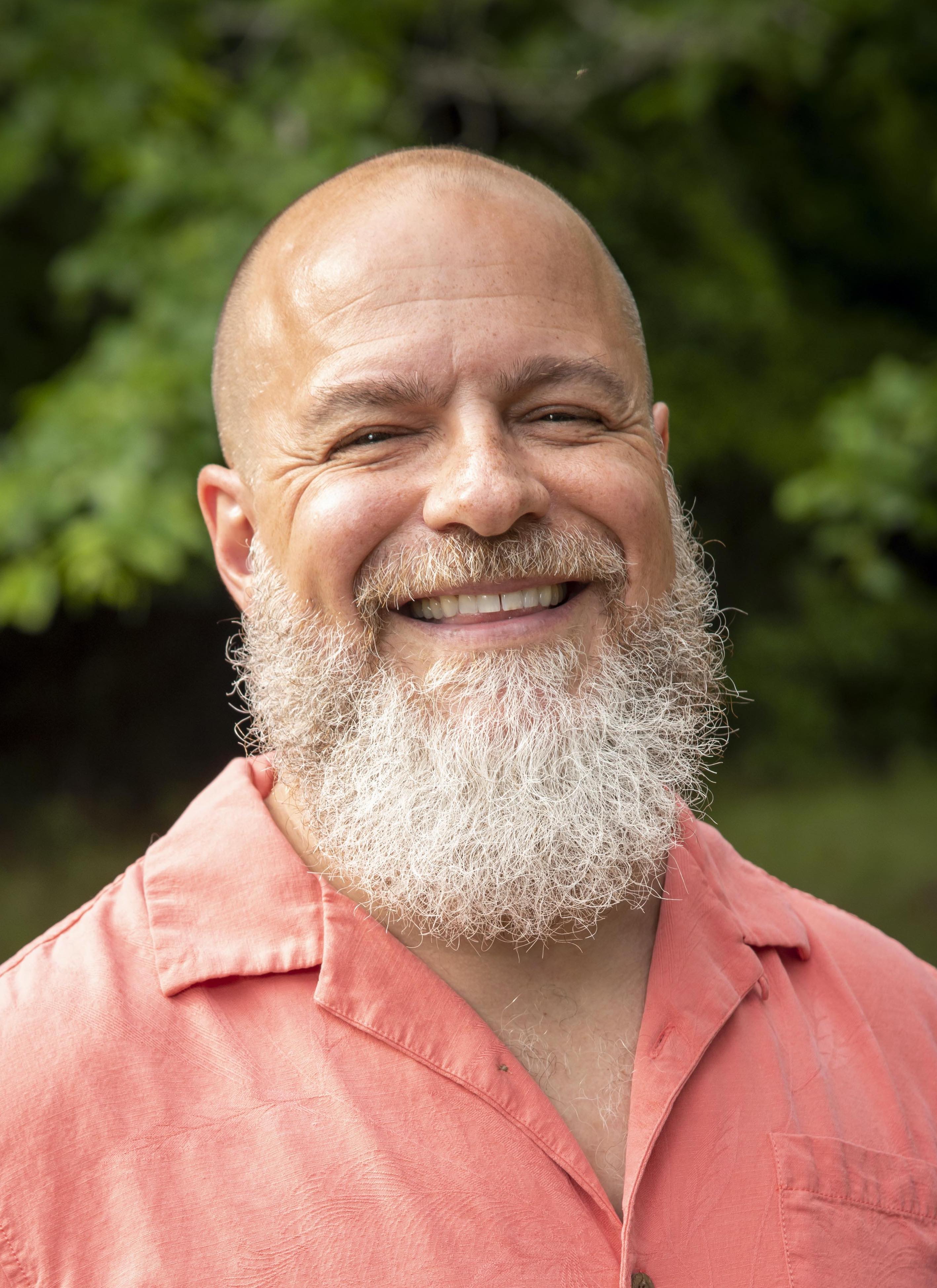
Scott LaGreca
Scott got his PhD in Botany from Duke working on the molecular systematics of the lichen genus Ramalina under Bill and Chicita Culberson. Since grad school he has worked in four major herbaria and has published over 40 articles on lichen fungi. His research ranges from biodiversity inventories, chemosystematics, and the evolution of the genus Ramalina. Most recently, Scott completed an updated checklist of the lichen species of Mount Mitchell, including proposals for five species to be protected at the state level.
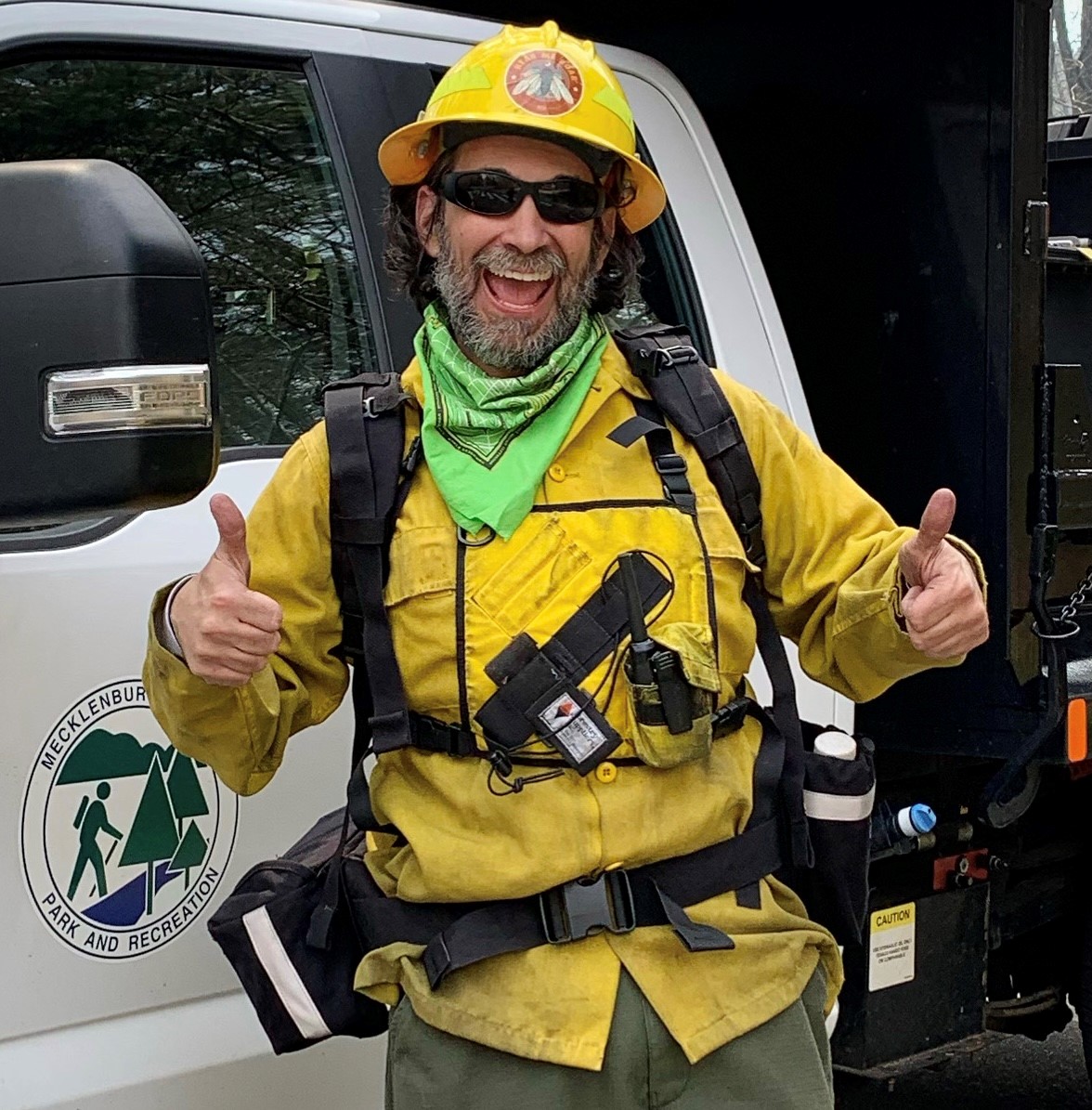
Lenny Lampel
Lenny is a Natural Resources Supervisor with Mecklenburg County Park and Recreations Division of Nature Preserves and Natural Resources. He is responsible for conducting biological assessments and inventories, monitoring populations of federal and state listed rare plant species, coordinating various fauna and flora studies and projects, and managing the biological collections housed within the Dr. James F. Matthews Center for Biodiversity Studies. Lenny holds an MS in Environmental Studies with a concentration in Conservation Biology from Antioch University New England and a BA in Biology from SUNY College at Old Westbury. Lenny lives in Concord, NC with his wife, three children and their big, furry dog and cat.
Ronald Lance
Ron Lance is a Land Manager with the North American Land Trust and has been the caretaker at Big Ridge Preserve for 10 years. He has held previous posts in natural history education and interpretation, biology, forestry, botany, and horticulture since 1975. He served on the Board of the International Oak Society for 12 years and has authored and co-authored numerous publications dealing with native woody plants of the Southeastern U.S., including 15 separate publications on Crataegus. A native of the Appalachian region of North Carolina, he now resides near Mountain Rest, SC.
Drew Lanham
A native of Edgefield, South Carolina, J. Drew Lanham is the author of The Home Place: Memoirs of a Colored Man’s Love Affair with Nature, which received the Reed Award from the Southern Environmental Law Center and the Southern Book Prize, and was a finalist for the John Burroughs Medal. Most recently, he is the author of Sparrow Envy: Field Guide to Birds and Lesser Beasts. He is a birder, naturalist, and hunter-conservationist who has published essays and poetry in publications including Orion, Audubon, Flycatcher, and Wilderness, and in several anthologies, including The Colors of Nature, State of the Heart, Bartrams Living Legacy, and Carolina Writers at Home. Lanham is a 2022 MacArthur Fellow. An Alumni Distinguished Professor of Wildlife Ecology and Master Teacher at Clemson University, he and his family live in the Upstate of South Carolina, a soaring hawks downhill glide from the southern Appalachian escarpment that the Cherokee once called the Blue Wall.
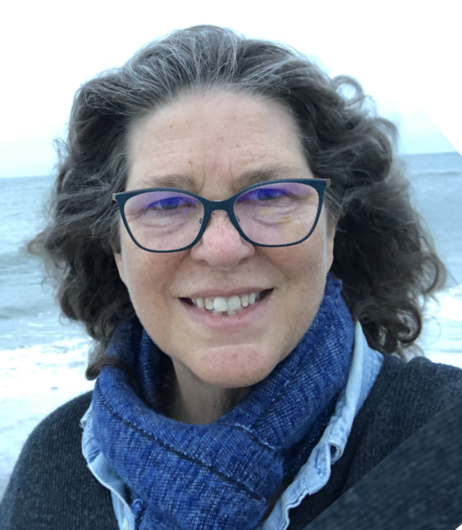
Margot Lester
After four decades of getting paid to sling sentences, Margot knows the challenges of producing high-quality writing and lots of strategies for making the process easier. An award-winning journalist, author and editor, she combines her experience on both sides of the desk with research-based tactics to build on each writer’s strengths. The Carrboro, N.C., native is a popular writing coach who works across genres with people at all skill levels, including academic researchers, fundraising and marketing pros, students, and emerging and established authors. A graduate of the UNC School of Journalism, she’s part of NASA’s Earth to Sky Climate Communication community of practice and participated in the first writing program at Highlands Biological Station last summer. Margot’s also a certified interpretive guide/naturalist and environmental educator.
Chris Liloia
Chris Liloia is a Curator at the North Carolina Botanical Garden, a conservation garden in Chapel Hill. She is responsible for the care of the habitat gardens which represent plant communities of the southeastern United States and display rare and common species in naturalistic settings. She also maintains NCBG’s carnivorous plant collection. She is knowledgeable in the cultivation of southeastern native plants and in the creation of gardens that are beautiful and brimming with biodiversity. Prior to joining the NCBG staff in 2000, she worked in ecological restoration in NJ and in south Florida. She earned her B.S. in Natural Resource Management, Conservation and Applied Ecology from Rutgers University.
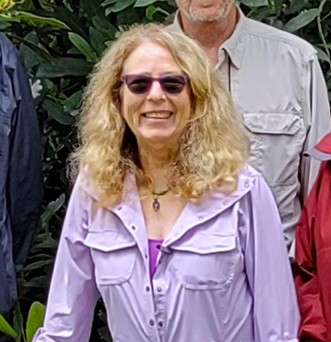
Mossin' Annie Martin
WNC native and nationally-recognized expert on moss gardening, Annie Martin, known as Mossin’ Annie, infuses her passion for mosses with her knowledge of bryophytes and successful gardening techniques. Wearing many hats, Mossin’ Annie is a moss rescuer, farmer, researcher, landscape designer, field guide, garden speaker and published author of The Magical World of Moss Gardening (2015; Japanese translation, 2017). As owner of Mountain Moss Enterprises and licensed NC Landscape Contractor, she offers consultation services, garden designs and turnkey installations emphasizing the year-round green appeal of eco-friendly mosses. Mossin’ Annie rescues mosses from places where they will be destroyed. At her Mossery in Brevard, NC, Martin cultivates shade, sun and versatile moss species. Martin advocates benefits of native mosses as intentional horticultural choices. In her own words, she was Born to be a moss artist and to create innovative designs and sustainable landscapes resulting in serene retreats that lift your spirit.
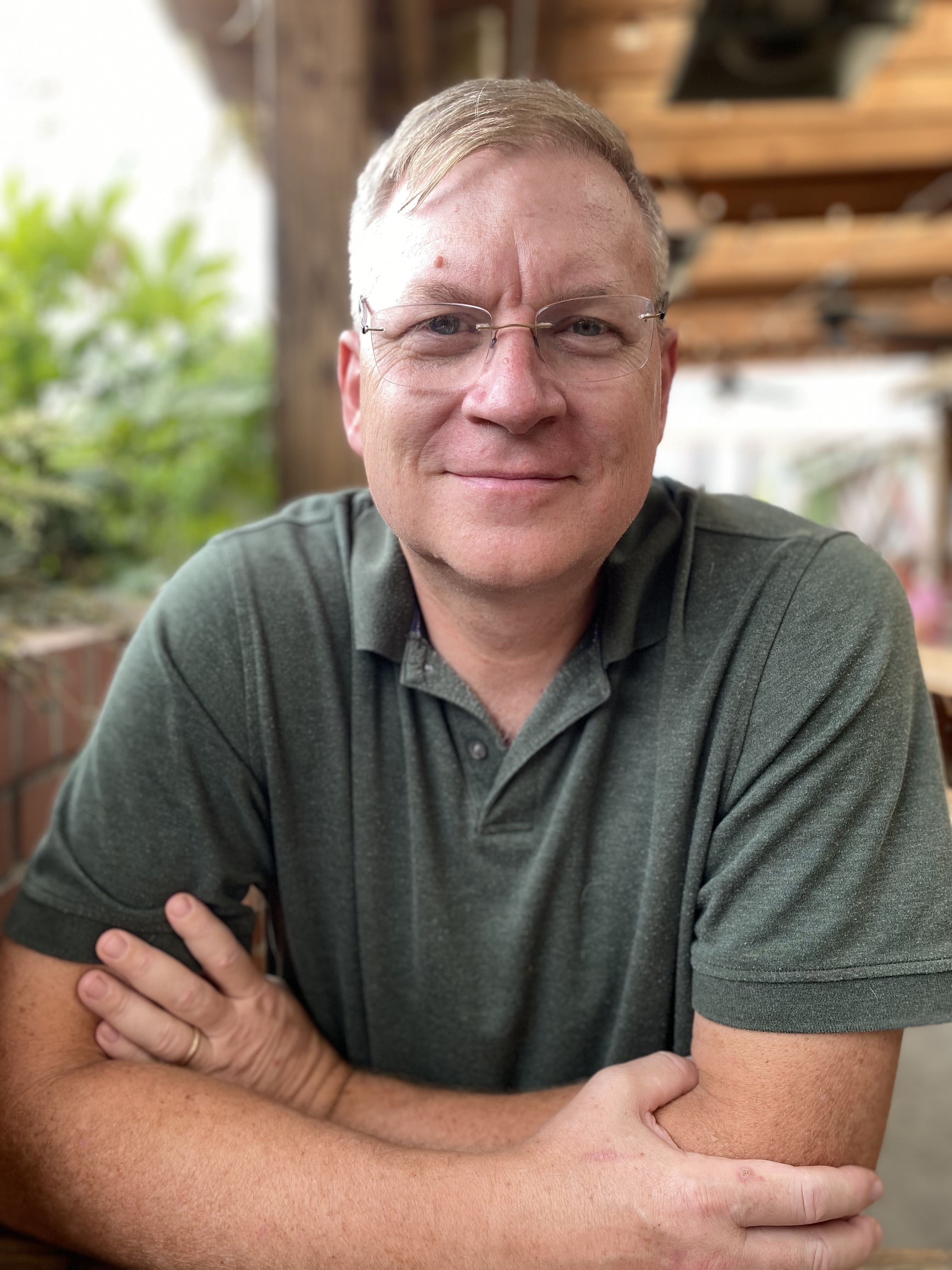
Jeff Masten
Jeff Masten is co-founder and co-director of the nonprofit Bluestem Community NC, a novel community centered nature preserve designed as a place of reverence with a conservation cemetery, located in Cedar Grove, NC. Jeff is also co-founder of LANDMATTERS, a multidisciplinary consulting firm that champions healthy communities in sustainable landscapes and specializes in conservation burial. For 12 years, Jeff was Director of Conservation Strategies for the Triangle Land Conservancy, where he protected more than 13,000 acres and prepared over 50 conservation easements in the Triangle region of North Carolina. Jeff is a founding member of the Conservation Burial Alliance.
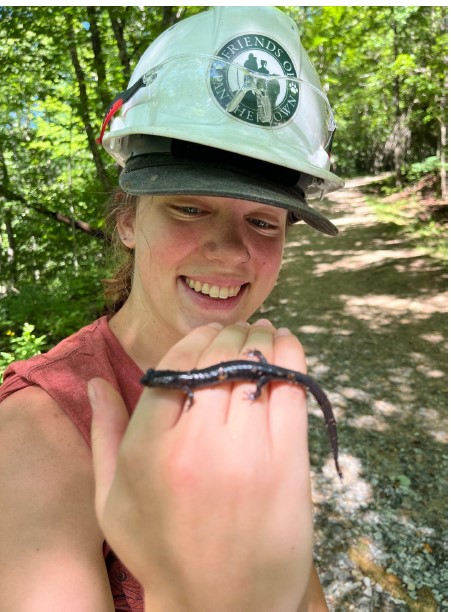
Kara McMullen
Panthertown Trails & Stewardship Director, is a Western Carolina University alumni, with a bachelor’s degree in environmental science. As a committed outdoorswoman through paddling, backpacking, and angling, it made sense that Kara would choose a career field in the outdoors too. In the summer of 2020 she interned with Friends of Panthertown, completing a comparison of water quality upstream and downstream on the Tuckasegee River. Since then, she has worked for the biology department at WCU and with Eastern Band of Cherokee Indians Fish and Wildlife. Kara has worked with Friends of Panthertown for close to two and a half years now and is well versed in the history of Panthertown, as well as in the conservation projects, trail maintenance, and educational outreach that Friends of Panthertown focuses on. She is excited to co-lead this hike with Marc Williams and to share the “inside scoop” of Panthertown with hike participants.
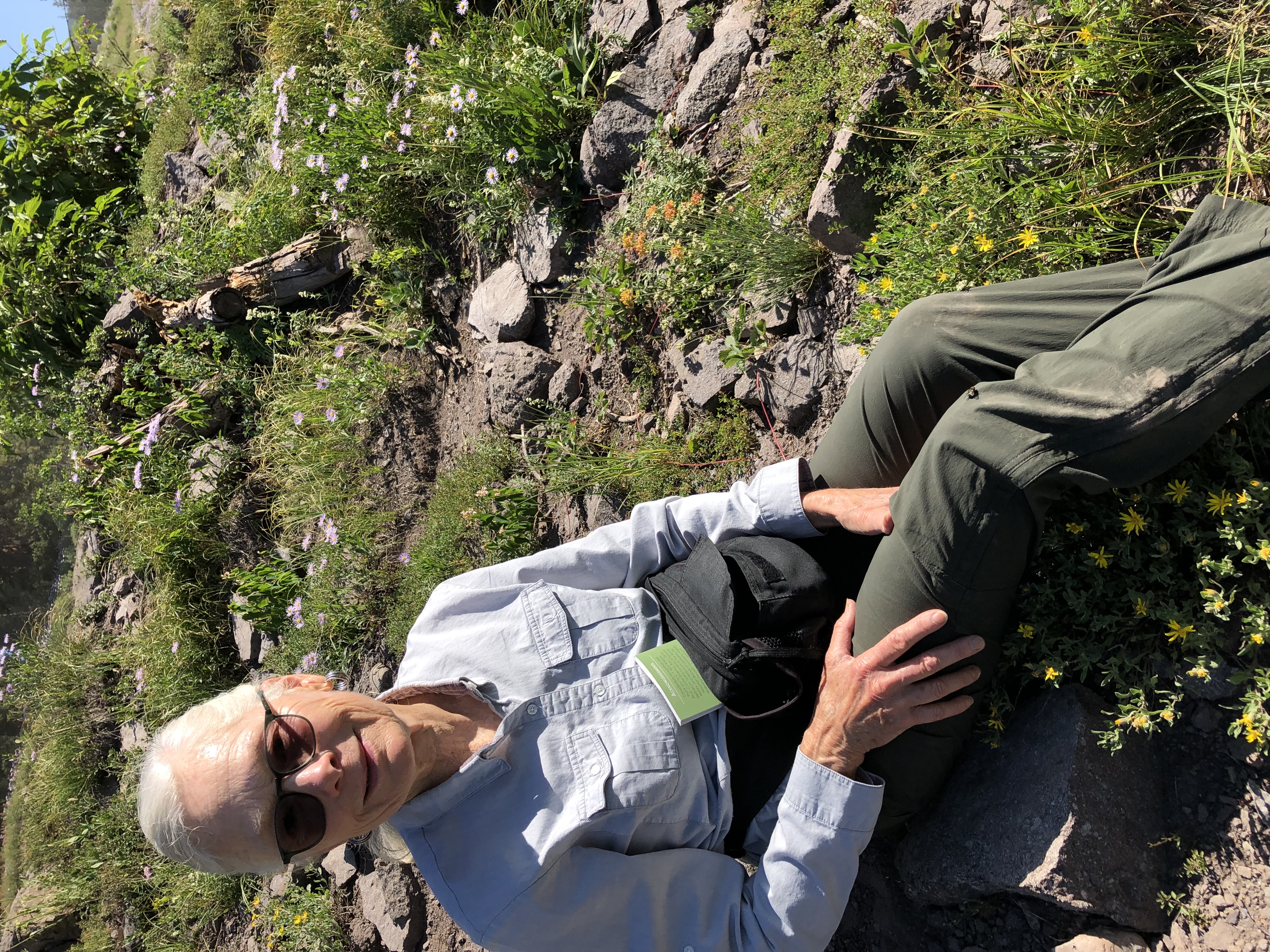
Jan Midgley
Jan operated a one wheelbarrow native plant nursery for over 30 years in MD and AL.
She kept
detailed notes on every step of the propagation process for each species. The notes
supported
the writing of articles, lectures, and books. She continues to self publish Native
Plant
Propagation, 5th edition.
After a move to CO six years ago, Jan started a self directed crash coarse in the
flora of the
Southern Rockies. She now volunteers arranging specimens two days a week in the Denver
Botanic Gardens Herbarium. The rest of the time she “plays” with seeds and maintains
a
Germination Guide for native plant seeds on the Wild Ones Front Range Chapter website.
Jan is a Past Director of the Cullowhee Native Plant Conference. She enjoyed serving
on the
Program Committee for ten years in the age of paper and snail mail.
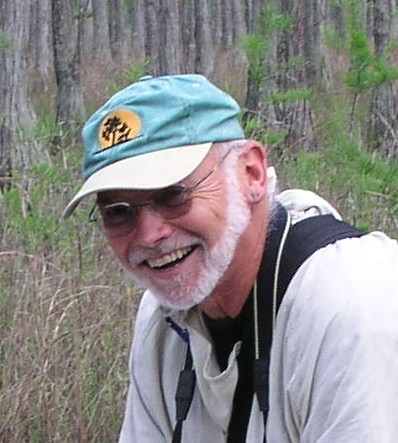
Ken Moore
Davidson College, English major, 1962; English Masters, UNC-CH, 1964.
Following two years in Army Intelligence (oxymoron?), returned to study Botany at UNC-CH. After two years graduate study in Botany, “walked” into position as first staff member of N.C. Botanical Garden (NCBG) in 1971. Retired as Assistant Director in 2003. Continued to lead field trips and plant identification classes at NCBG and Duke Gardens for several years.
Part-time nature school leader for West Point on the Eno River, Durham, NC (two years) and Earth Guide (two years) at Timberlake Farm, Whitsett, NC.
Most enjoyed accomplishment: author of “The Annotated FLORA, Take a Close Look” column for The Carrboro CITIZEN, 2007 – 2012. The citizen is perhaps the only news publication in the world to feature native plant stories with color photographs on front and last page of each issue.
Still alive at 84, residing in a cohousing community in Abingdon, Va., engaged in vigorous efforts to replace the existing landscape of excessive lawn and planted exotic invasives with native plants and leaves left in place where they fall beneath trees. This is an uphill battle as in any dreaded “neighborhood homeowners association.” Nature’s Last Hope is still on the far-off horizon and “CULLOWHEE” continues to be a guiding light!
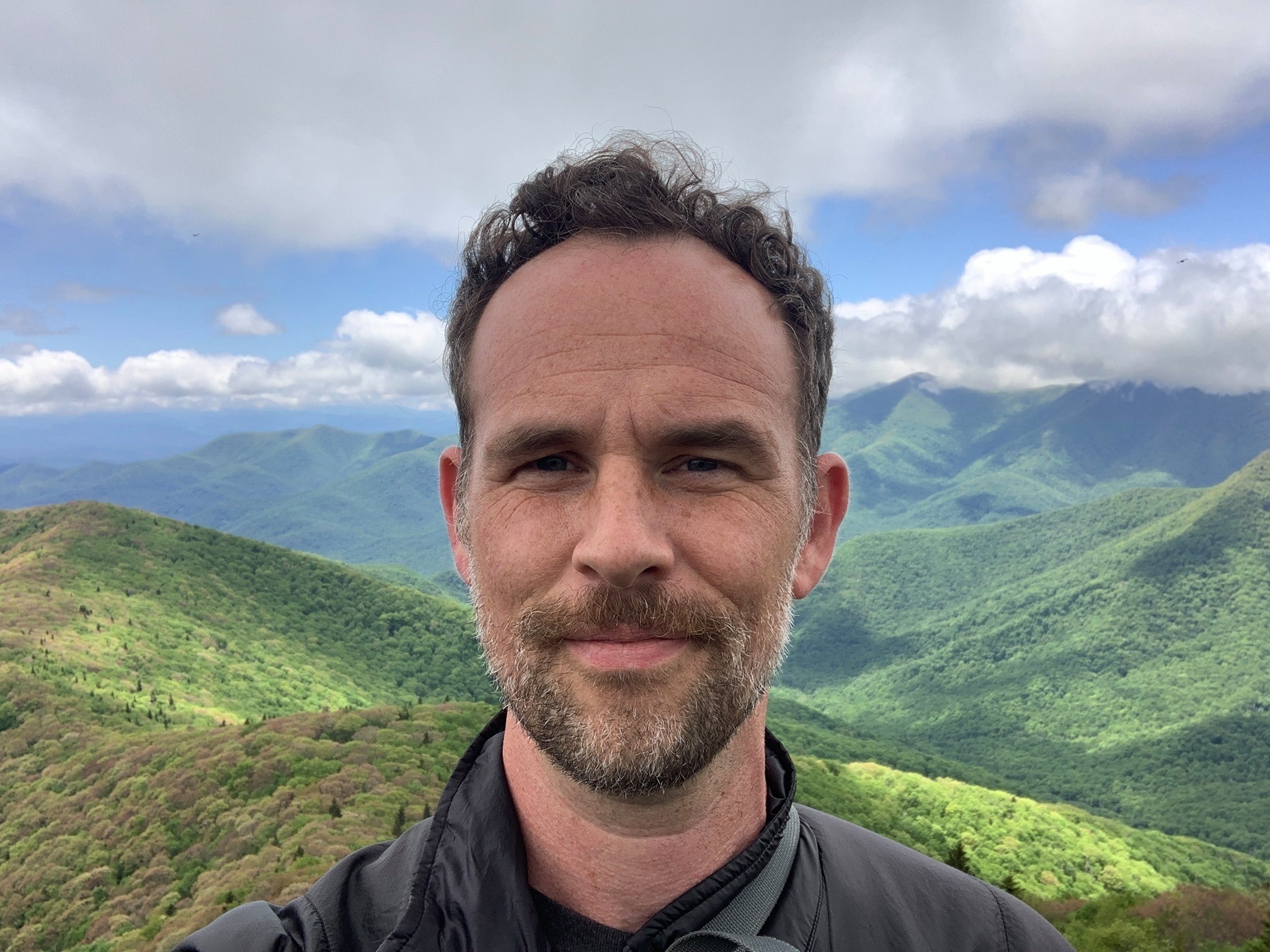
Preston Montague
Preston Montague is an artist, horticulturist, and landscape architect working to strengthen relationships between people and the natural world.
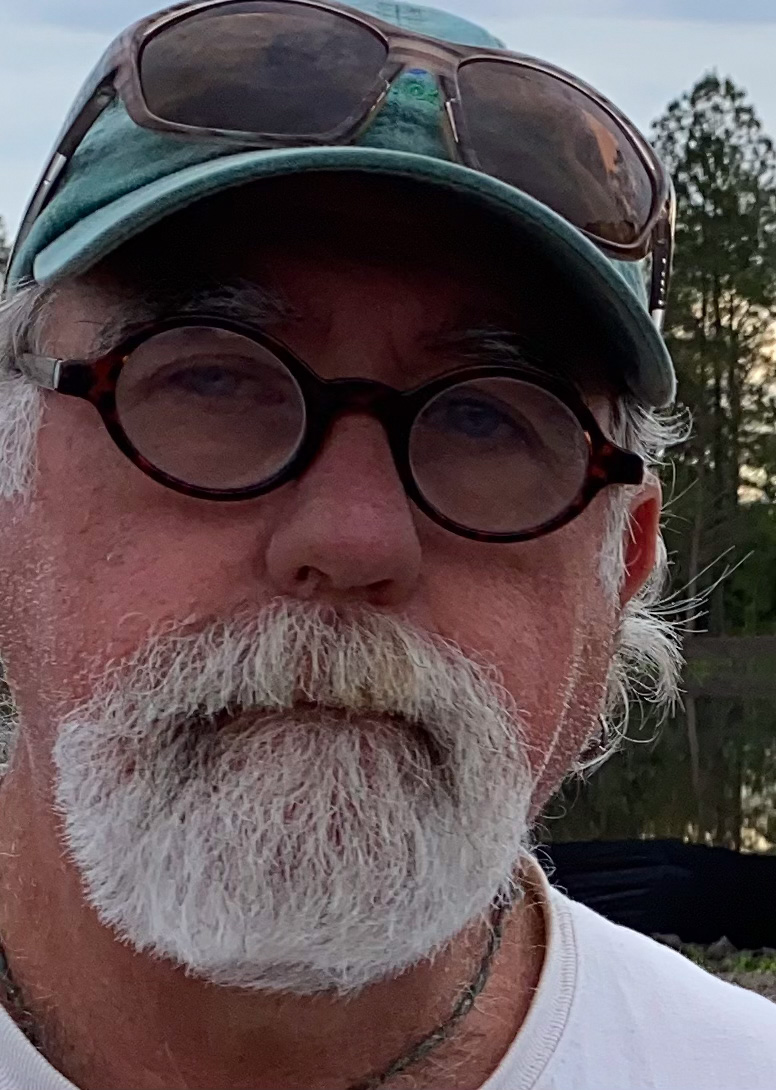
George Morris
Mr Morris is a steering committee member and a long time conference attendee, dating back to 1989. He has been on the program leading field trips and stream restoration walks on campus since 2006. Mr. Morris is the owner of Ripple EcoSolutions which was incorporated in March of 2019. Mr. Morris designs, implements and oversees planting projects for various clients in riparian buffers, wetland and stormwater BMPs. He also oversees invasive plant species removal for various projects. Mr. Morris has an extensive background in riparian buffer and wetland planting, horticulture and landscaping with native plant species. Mr. Morris has over 35 years of experience in the environmental industry, including over 20 years with environmental restoration of native plant communities and over 20 years with removal of invasive species. Prior to Ripple EcoSolutions, Mr. Morris was Botanist/ Vegetation Specialist for River Works from 2004 to February 2019. Mr. Morris was also an Environmental Scientist for an environmental restoration planting company where his primary responsibilities were oversight of installation of bioengineering and riparian buffer plantings for stream and wetland restoration, as well as design and installation of BMP’s and rain gardens. He also owned Landscape Sanctuaries, specializing in the use of native plants in landscape situations. Prior to Landscape Sanctuaries, Mr. Morris was Superintendent of Grounds at Davidson College and oversaw the day to day maintenance of the college campus and athletic fields as well as the selection, planting, and accessioning of plants in the Davidson College Arboretum. Mr. Morris holds a B.S. in Plant Science from the University of Delaware. He is a certified Stormwater BMP Inspection and Maintenance Professional and licensed NC Landscape and Aquatic Pesticide Applicator in North Carolina, Virginia and South Carolina. Mr. Morris serves on the board for the North Carolina Invasive Plant Council. He represents the landscape industry on the North Carolina Invasive Plant Council.
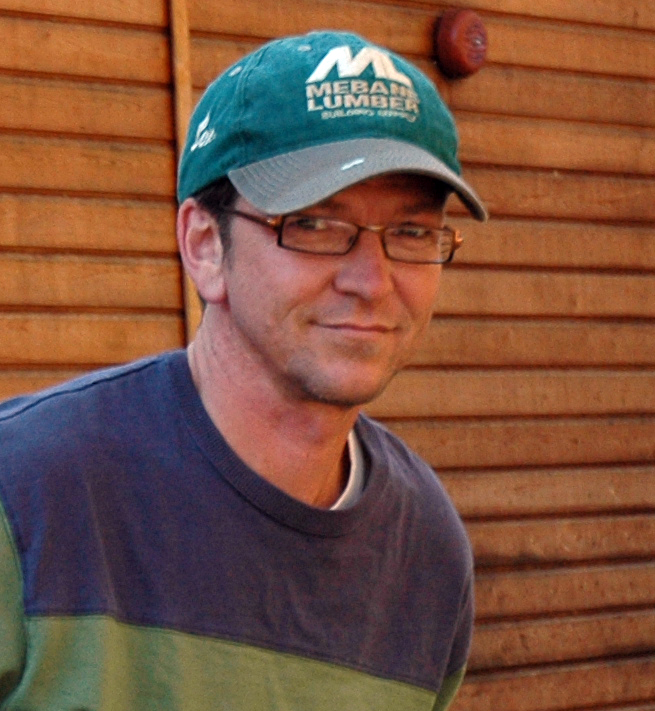
Geoffrey Neal
Geoffrey Neal currently serves as Assistant Curator and Arborist at the Coker Arboretum, a 5-acre historic garden on the campus of the University of North Carolina at Chapel Hill and a part of the North Carolina Botanical Garden. He has worked with and for plants for the past 25 years.
Lauren D. Pharr and Murry Burgess
Lauren and Murry are the co-founders of Field Inclusive, a new nonprofit striving to provide tangible and actionable improvements in the natural resources by addressing social field safety issues related to justice, equity, diversity, and inclusion (JEDI). They seek to support all field biologists in the natural sciences through identifying and addressing field safety issues, developing field safety resources, and supporting marginalized researchers through financial aid and experiential learning opportunities. On the awareness side, FI offers consultations, speaking events, and workshops. On the advocacy side, they offer environmental education programs, as well as travel and research awards, and fellowship opportunities for minority individuals. Their workshop at the Native Plant Conference will help individuals understand and prioritize social field safety (i.e. interactions with the general public or other individuals) both on an individual and institutional level. Information will cover the history of minorities and outdoor experiences, the founding of FI, and strategies and suggestions that institutions and organizations can use in order to provide a safe environment for their researchers.
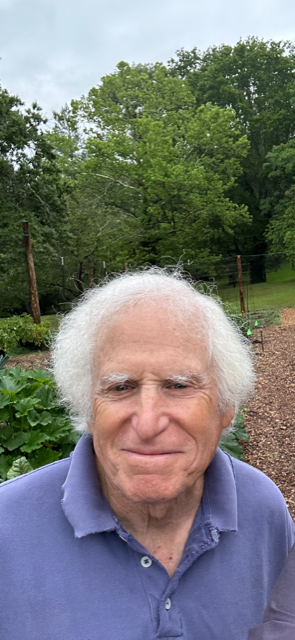
Harry Phillips
Harry Phillips worked at the North Carolina Botanical Garden from 1975-86, where he served as Curator of Native Plants. He taught English for the next 23 years. Now, he lives in Saxapahaw, NC and oversees native plant projects in the village. Most exciting these days is his work with K-4 gardeners who don't edit anything they say.
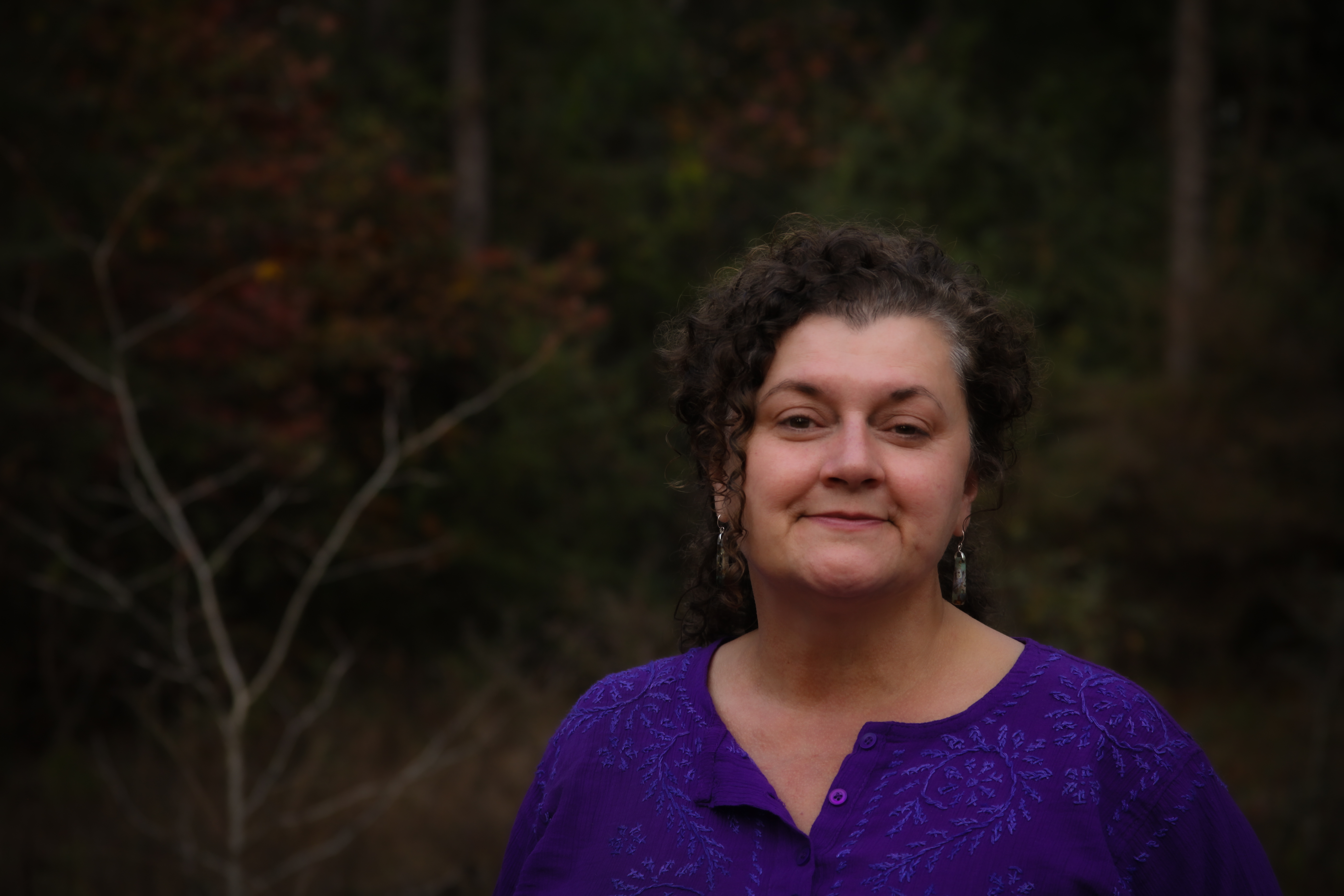
Nadine Phillips
Nadine Phillips is a lifelong nature lover. She is most at home, and most herself, in the forest. Nadine has led Forest Therapy walks since 2018 and is a certified Nature & Forest Therapy Guide accredited by the International Nature and Forest Therapy Alliance (INFTA). She is active in the native plant movement as a gardener, Vice President of the Mississippi Native Plant Society, and as historian for the Cullowhee Native Plant Conference. Nadine has been featured in DeSoto and Okra magazines and appeared as a guest speaker on episodes of theNative Plant Podcast and Nature Revisited. Nadine is an avid photographer, always seeking to capture nature’s beauty and wonder. All of her interests revolve around nature and promoting biodiversity to support the interconnected Web of Life. Nadine is also a longtime volunteer at The Crosby Arboretum, the premier native plant conservatory in the Southeast located in Picayune, MS.
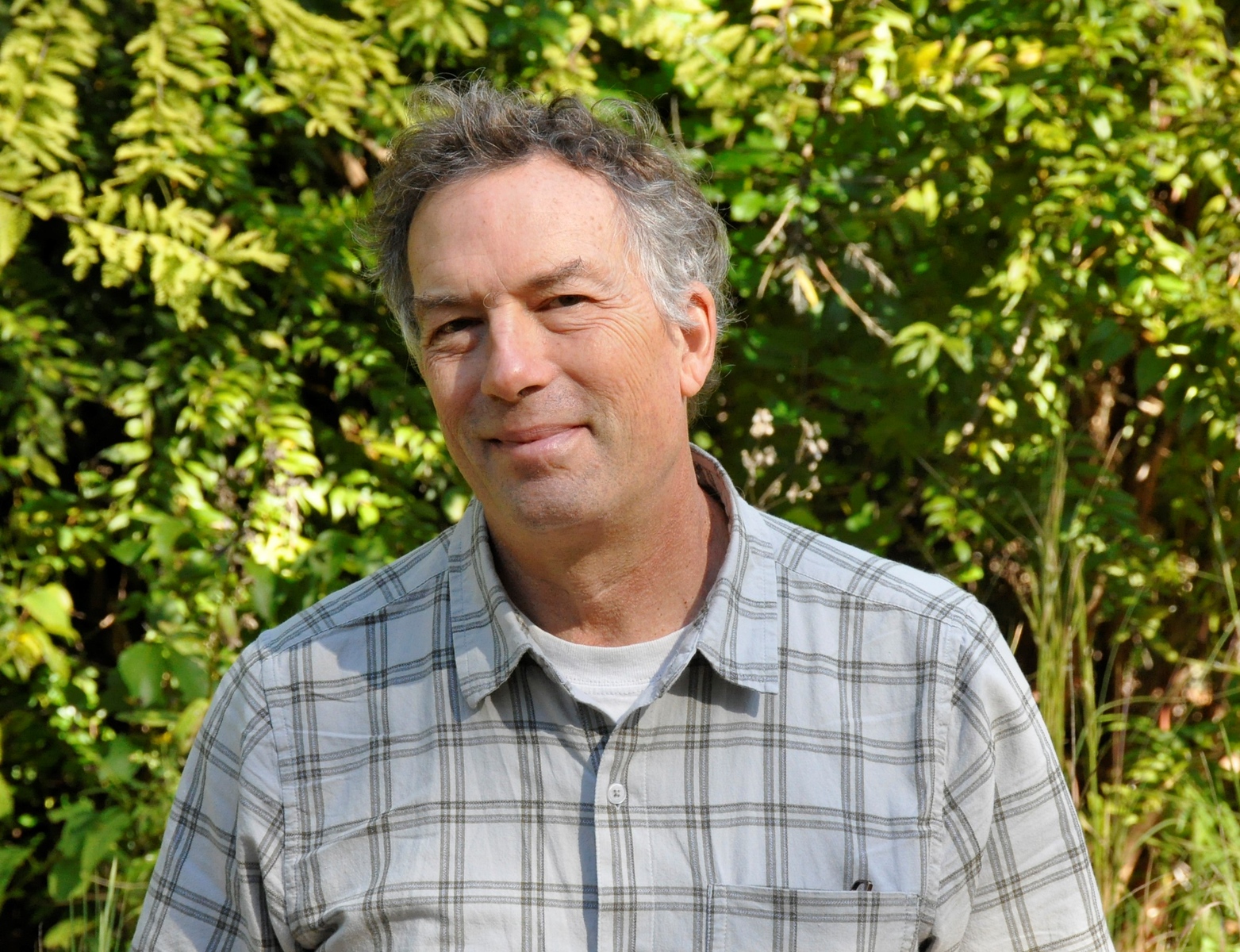
Johnny Randall
Johnny Randall was the Director of Conservation at the North Carolina Botanical Garden (1998-2023) and continues as adjunct faculty in the UNC-Chapel Hill Program in Environment, Ecology, and Energy (EP3). He received a bachelor’s degree in biology from UNC-Charlotte, and both a MS and PhD in botany/plant ecology from VA Tech. Johnny served as biology faculty at UNC-Greensboro and at the University of North Florida for a total of 10 years before coming to the North Carolina Botanical Garden. His primary responsibilities at NCBG were to oversee the conservation and management of approximately 1,200 acres of natural areas, acquire additional lands and easements for conservation preserves, administer conservation seed programs, help direct rare plant recovery projects, and serve as an “ecological extension agent.” His primary research areas include rare plant biology and reintroduction, and ecosystem restoration/rehabilitation. He taught (and continues to teach) classes on conservation biology, nature preserve design and management, rare plant biology, pollination ecology, and gives public and professional presentations on a wide range of botanical and ecological subjects.
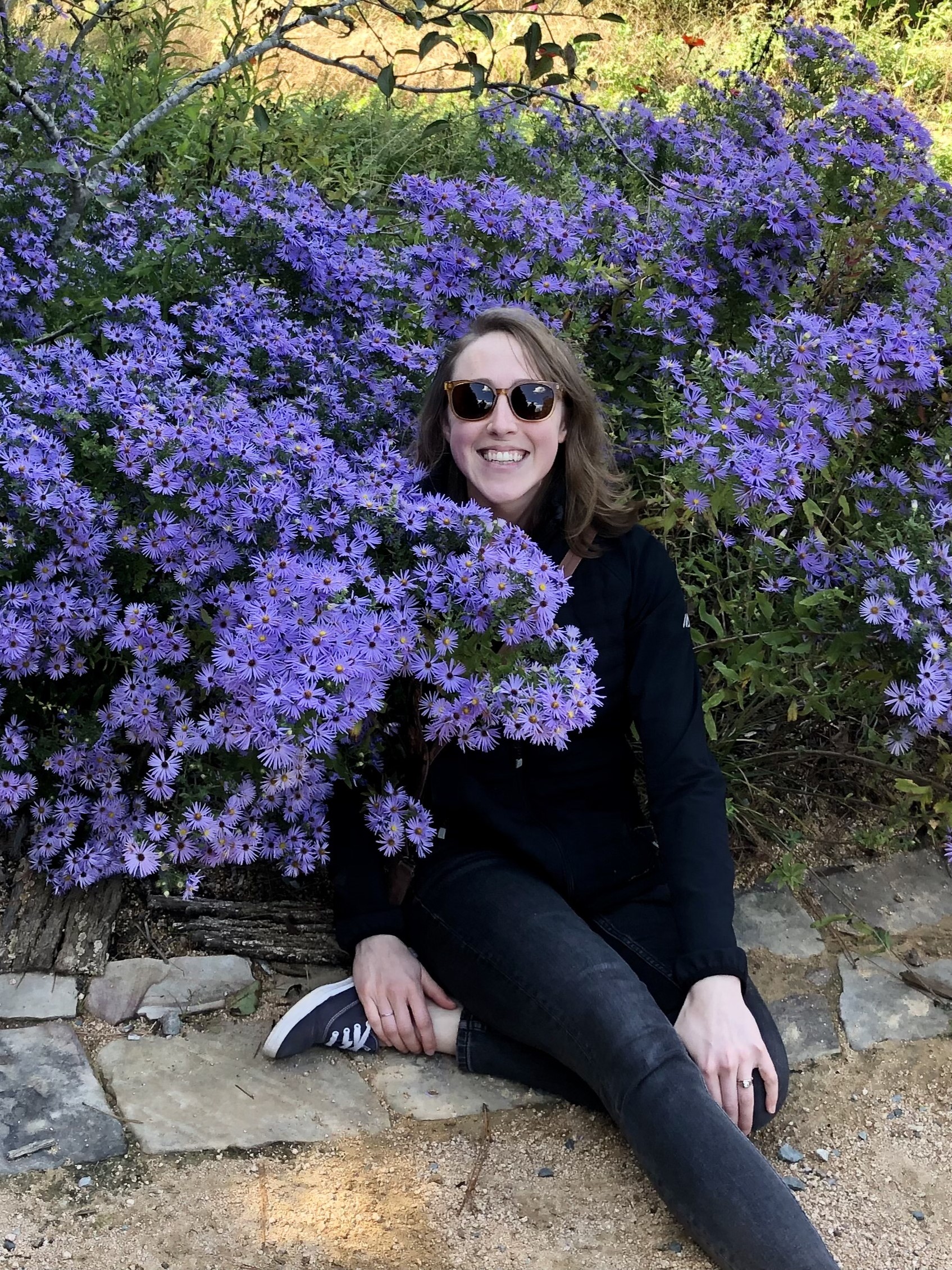
Rachelle Roake
Rachelle works to support biodiversity and foster stewardship through native landscape design and activism. She owns and operates Reconnect Landscapes in Chapel Hill, NC. Never far from birds, she serves on the board of New Hope Audubon Society and is active on the Bird-Friendly Certification, Conservation, and Field Outings teams. Rachelle hails from Michigan and holds a B.S. in Ecology, M.S. in Wildlife Sciences, and a Master of Landscape Architecture.
Taylor “Wish” Ramsey
Wish Ramsey is an appalachian-born horticulturist and self-ascribed forest goblin. Born and raised in the Blue Ridge Mountains of Appalachia, she has always heard a call to act as steward to the unique wild-ness of North Carolina. First learning about the medicinal plants underfoot from her Nana, she continued to be self-taught in medicine-making and gardening until pursuing higher education where she found another love - design. Believing deeply in biophilic design and the rewilding of urban spaces and people, she started Lunar Roots Gardening in 2022. There she focuses on building gardens that bring us a sense of wonder and rootedness, as well as having a keen interest in aiding the under-served low-income communities to fight food insecurity through gardening. Wish doesn’t believe any space is too small and believes if the space is there, you can plant it. Lastly, she hosts seasonal plant walks as well as monthly workshops that focus on the ethnobotanical use of plants of her area. Currently, she resides beside the Eno River in Chapel Hill, NC.
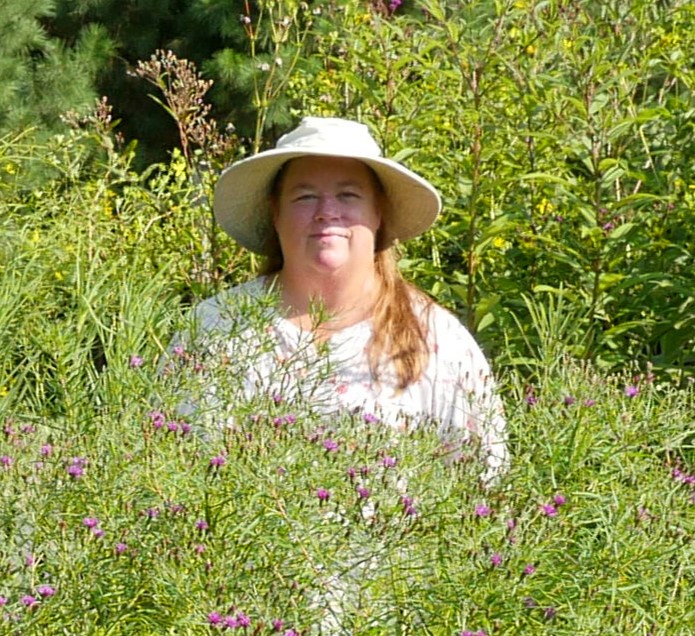
Debbie Roos
Since 1999 Debbie Roos has been a Sustainable Agriculture Agent for the Chatham County Center of North Carolina Cooperative Extension where she is responsible for programming in the areas of commercial vegetable production, organic production, pollinator conservation, alternative agricultural enterprises, forestry, and beekeeping. Debbie worked for three years as an Agroforestry Extension Agent and Technical Trainer for the Peace Corps in Senegal, West Africa, and later completed graduate degrees in applied anthropology and horticulture at the University of Florida. Debbie delivers educational programming to growers through regular workshops and her award-winning Growing Small Farms website (growingsmallfarms.ces.ncsu.edu). Debbie is passionate about pollinator conservation and created a demonstration Pollinator Paradise Garden and developed resources to teach others about the importance of bees and other pollinators to our agriculture ecosystem. In 2019 Debbie received the Governor’s Conservation Achievement Award as the Wildlife Conservationist of the Year from the North Carolina Wildlife Federation. Visit her pollinator website at go.ncsu.edu/pollinator-garden.
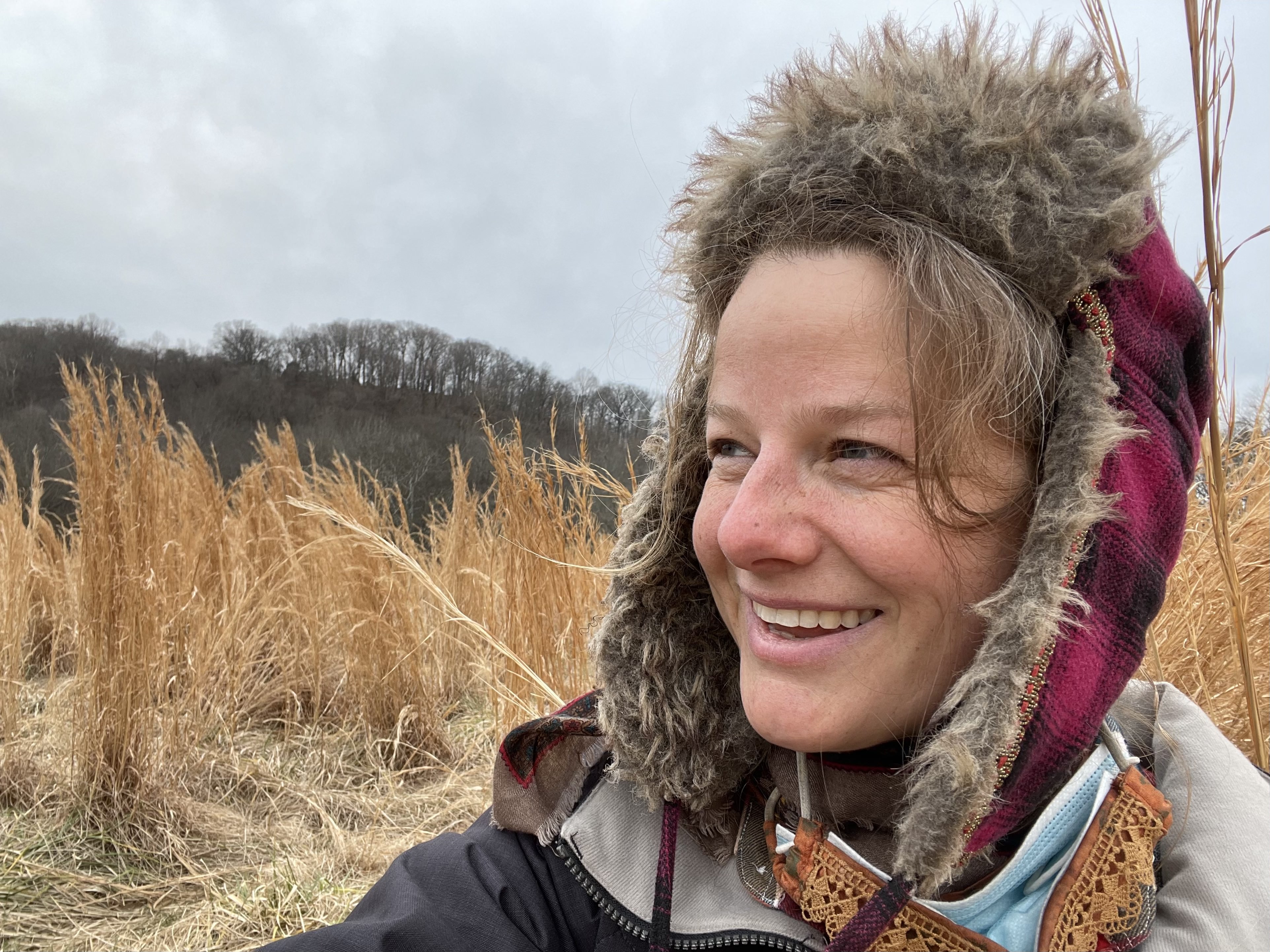
Lyn Rutherford
Lyn Rutherford’s education in Biology at Warren Wilson College in the mountains of North Carolina gives a theoretical grounding to the practical skills she has cultivated across a varied career. She has done trailwork, conservation, habitat restoration, invasive plant management, fine gardening, and, most recently, stormwater management through green infrastructure plantings. Lyn’s work for the City of Chattanooga as a Natural Resources Supervisor has given her particular expertise in the intersection of native plants and stormwater management in urban watersheds. She manages municipal bioretention/rain gardens, riparian buffers, naturalized basins, green roofs, and wetlands and is a certified SCM Inspection and Maintenance professional. Throughout nearly a decade of service to the City’s Public Works and Parks departments, and volunteering with the Wild Ones, she has been a tireless advocate, educator, and hands-in-the-dirt worker for native plants on public lands. Inseparable from her advocacy for native plants is her pursuit of better working conditions, education, and recognition for the workers who enable them to flourish.
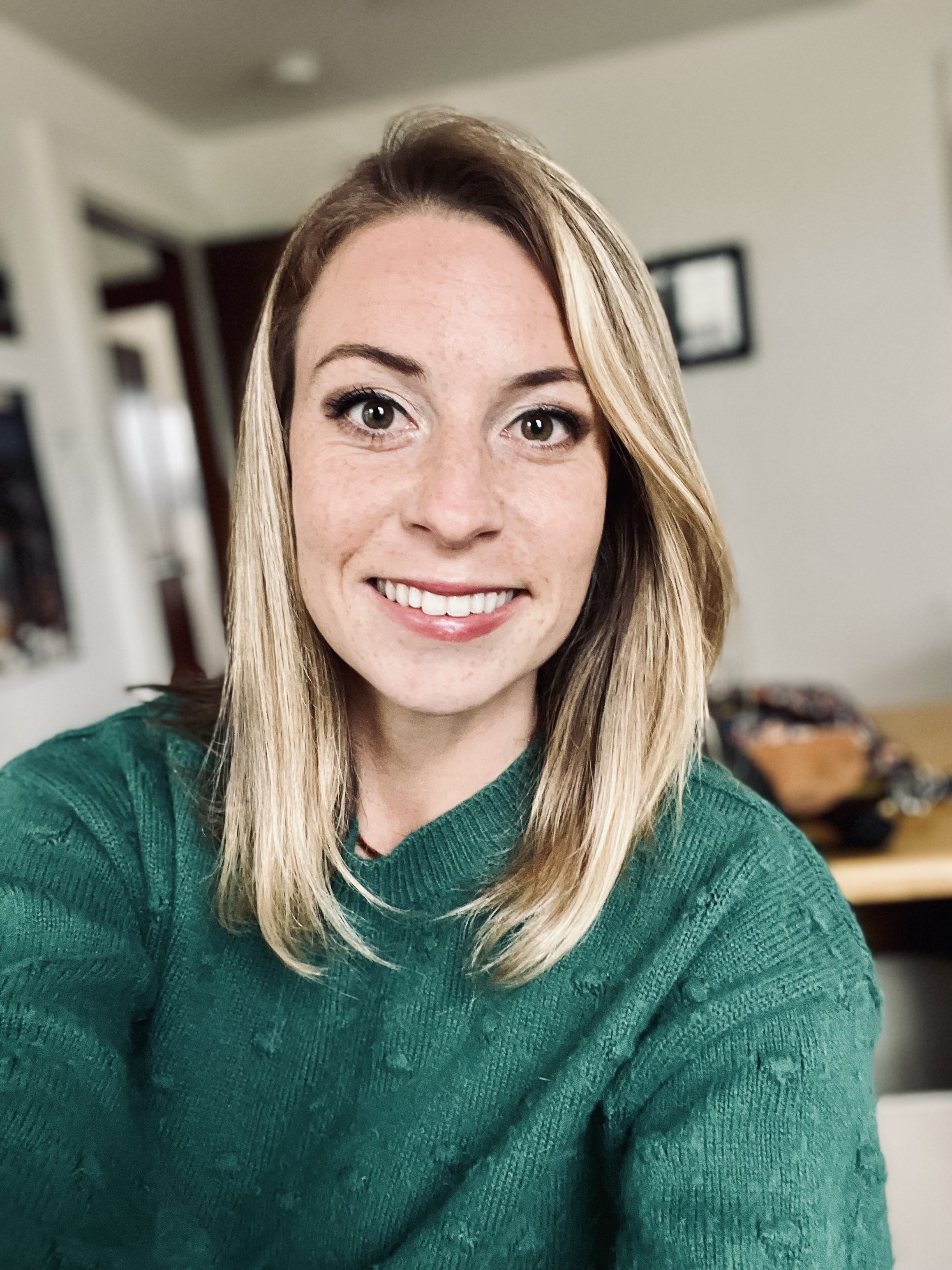
Shelby Sanders
Shelby Lyn Sanders joined the Foothills Land Conservancy staff in 2017. She is the Director of Natural Resources, working internally to oversee all aspects of land management as well as in the field, preparing baseline documentation reports and annual monitoring of conservation easement properties. Shelby graduated from the University of Tennessee – Knoxville in 2015, receiving a B.S. in Wildlife & Fisheries Science with a focus on management. An Oklahoma native, Shelby has called East Tennessee home since 2009. Her background includes working in both Tennessee and Kansas studying the ecology of grassland birds for UT’s Center for Native Grassland Management. Shelby Lyn also spent a year working for the Southern Research Station of the USDA Forest Service in conjunction with UT, where she assisted with the data collection for various projects assessing growth and competitiveness of upland hardwoods in the Southern Appalachian region. Shelby is a whole-hearted native plant enthusiast and is involved in several local organizations and initiatives aimed at increasing awareness about the value and use of native plants in the landscape. In her free time, Shelby enjoys birding, botanizing, hiking, and watching any kind of racing, especially NASCAR.
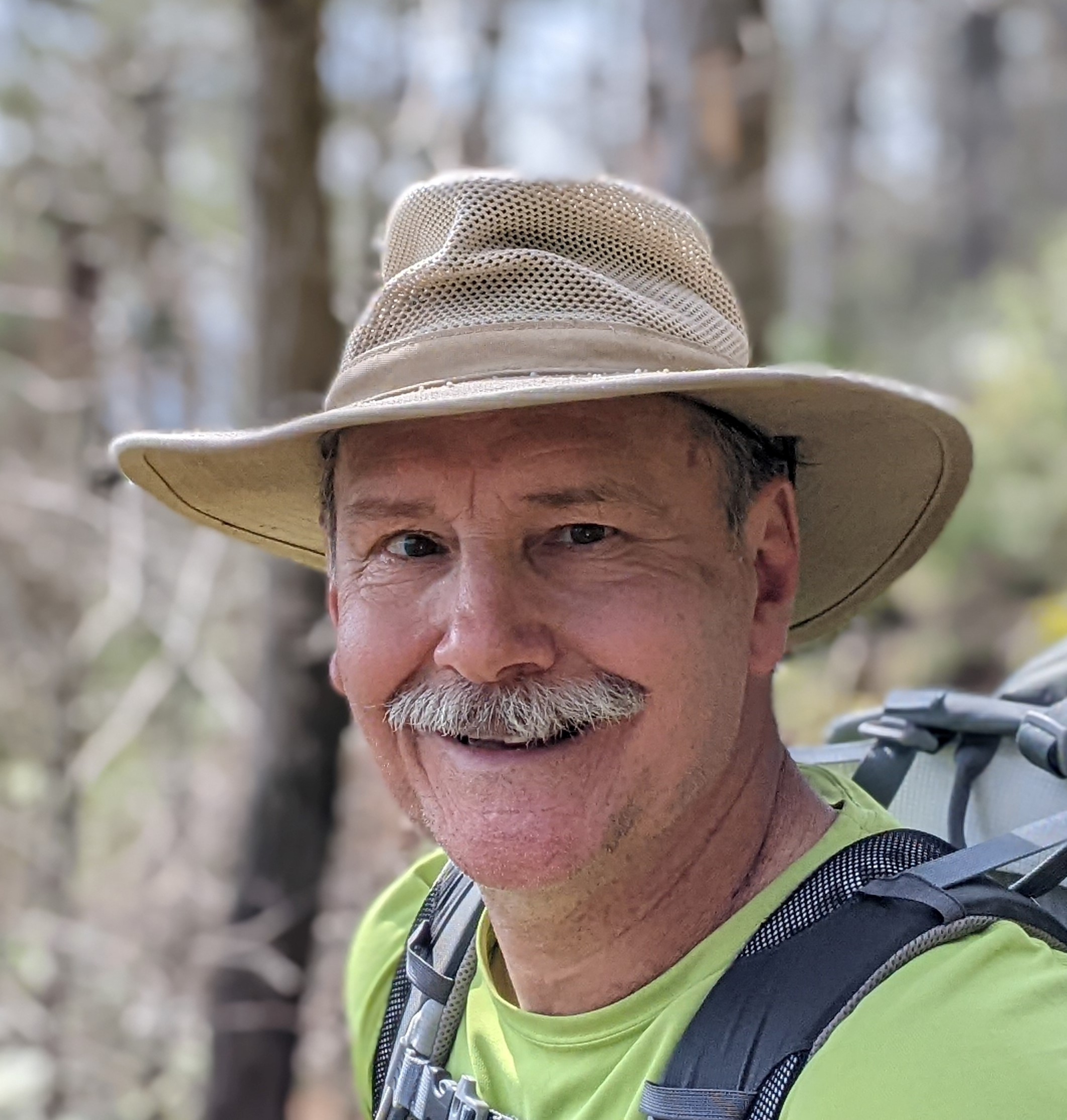
Pete Schubert
Pete retired from a career managing construction projects for the Corps of Engineers and the US EPA in the Triangle area of NC. Trained as a geologist but working as an engineer, he developed a passion for protecting AND restoring the environment, which he now pursues full time as a volunteer. Pete leads wildflower, ecology, and geology hikes in natural areas across NC, and has served on the boards of the North Carolina Invasive Plant Council, the Eno River Association, and the B.W. Wells Association, and is a past member of the Cullowhee Native Plant conference steering committee. He is on the New Hope Audubon Bird-Friendly Habitat team, and is a volunteer land steward for the Eno River Association, Ellerbe Creek Watershed Association, Triangle Land Conservancy, NC Botanical Garden, and other local landowners and watershed protection organizations.
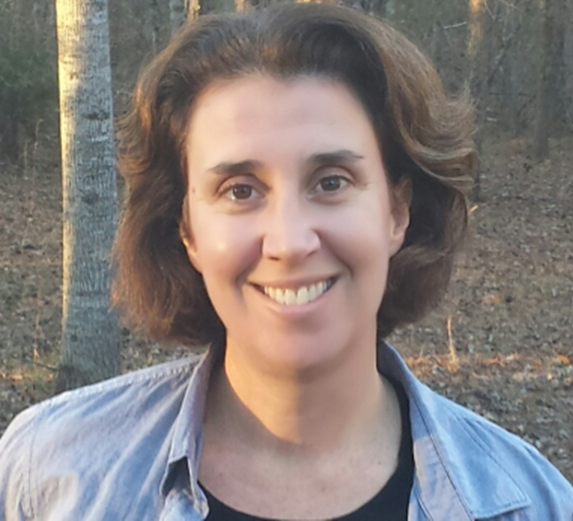
Dawn Sherry
Dr. Dawn Sherry is an avian ecologist by training and a native plant enthusiast because of the Cullowhee Native Plant Conference! She is a Professor of Biology at Middle Georgia State University where she serves as the Chair of the Department of Natural Sciences. When she’s not in the classroom, she enjoys hiking, kayaking and any excuse to be outdoors.
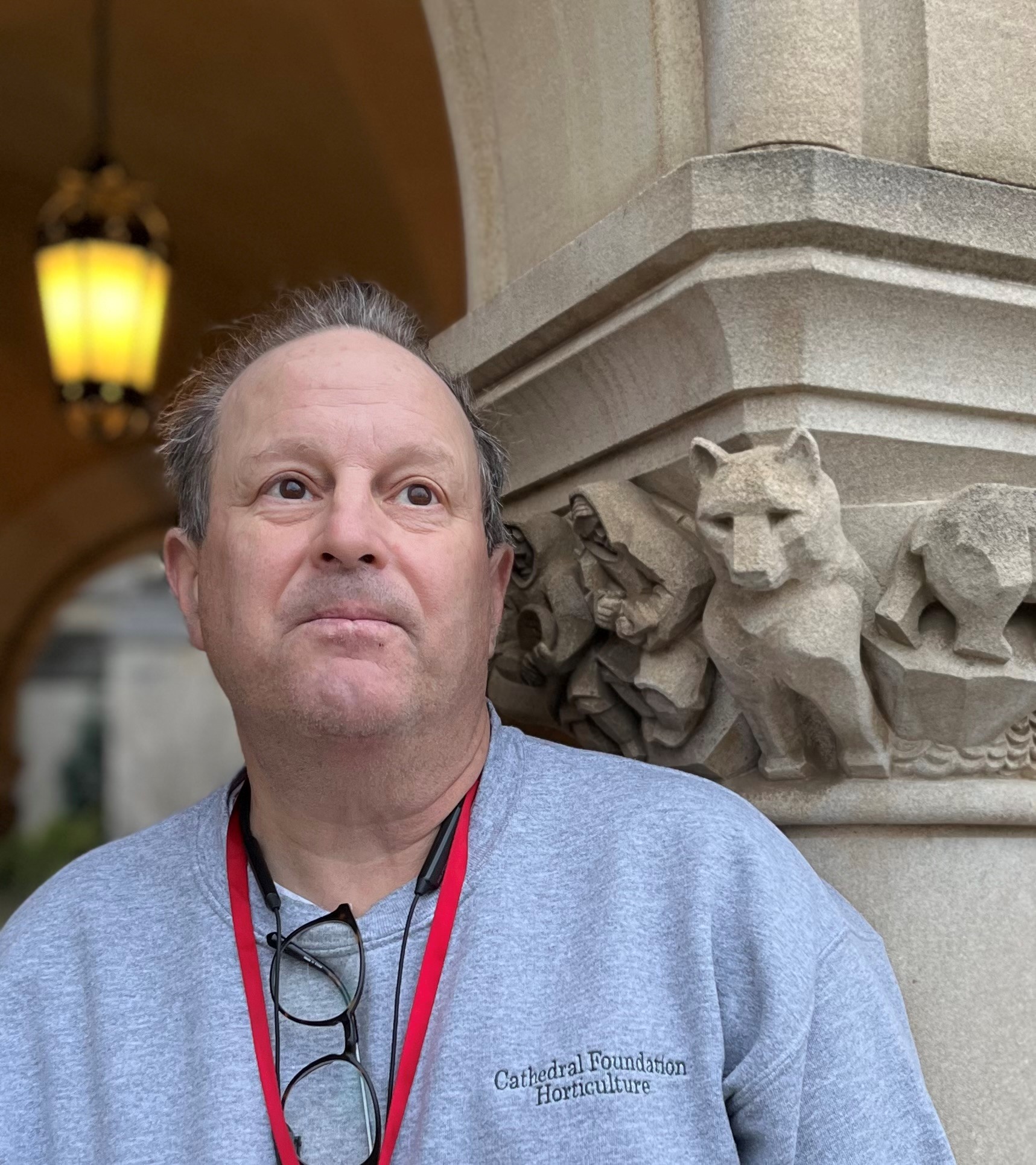
Peter Spaulding
Peter Spaulding is in his 16th year as a gardener at the National Cathedral in Washington, D.C. Getting this job at the Cathedral suited him just fine as that he grew up in the English garden style. He had designed, built and maintained gardens like this for 30 years already. Move ahead to 2017, he attended his first Cullowhee Conference. Ever since then, he has been cajoling, extoling, and persuading the virtues of native planting. And trying to shift people’s perceptions of what is a beautiful and functional landscape as opposed to a golf course. It seems to be working. This year marks the third installation of a native garden on the grounds of the National Cathedral.
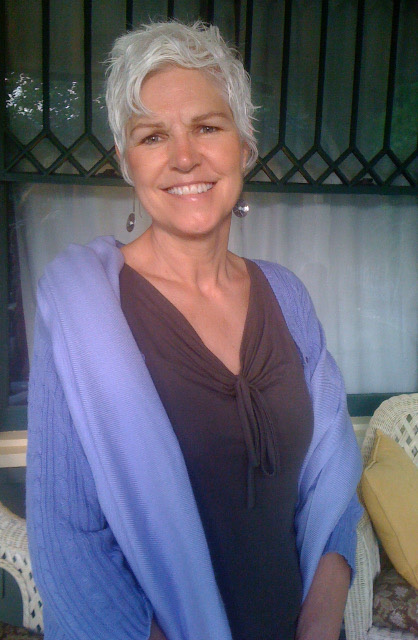
Phyllis Stiles
Phyllis Stiles is founder and director emerita of Bee City USAA. In 2015, the North American Pollinator Protection Campaign named Stiles “Pollinator Advocate of the Year for the United States” the same year the sister program, Bee Campus USA, launched. To date, nearly 400 cities and campuses in 46 states have joined the Bee City and Bee Campus USA networks, which became initiatives of the Xerces Society for Invertebrate Conservation in 2018. Stiles has made well over a hundred presentations and published countless newspaper and magazine articles about pollinator conservation across the nation. She spent her career at universities and non-profit organizations serving communities from West Africa to the Mississippi Delta, in fields ranging from natural resource and farmland protection to fundraising. Today, Stiles is as excited to create climate-resilient, connected pollinator habitat as she was when she launched Bee City USA in 2012.
Tom Tribble
Tom Tribble served six years as President and is now an At-Large Director of Blue Ridge Audubon Chapter, which covers Buncombe, Henderson, Madison and several adjacent counties in western North Carolina. Tom has been an Audubon member and avid birder for more than 45 years. Tom worked for 30 years at the NC Center for Geographic Information & Analysis, the State's Geographic Information System, retiring in 2013. He holds a Bachelor's degree from Vanderbilt University and a Master's degree from Duke University.
Dayna Walton
Dayna is a printmaker, illustrator, and mural artist who makes work advocating for the tiny and 'creepy crawly' parts of nature, highlighting the importance and beauty of the overlooked. She graduated from Kendall College of Art and Design in Grand Rapids Michigan, earning her BFA and Excellence Award in Printmaking in May of 2019. After falling in love with WNC during her residency with the Smoky Mountains National Park in 2019, she recently relocated to the area where she runs a backyard screenprinting studio. Here she creates prints from her ink drawings that she offers at local shops, art fairs, community gatherings, and more. When she's not creating, she works alongside nature centers, museums, public libraries, and similar groups to lead workshops and paint murals. Through collaboration, science and art come together and inspire others to learn about and tend to the ecosystem they themselves are a part of. To learn more please visit her Website or Instagram.
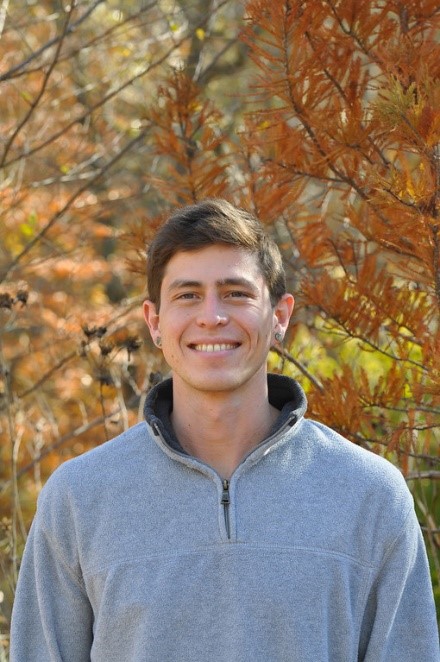
Scott Ward
Scott Ward is a research botanist at North Carolina Botanical Garden working for the Flora of the Southeastern United States team and its associated PDF publications, as well as web and phone applications. Scott is originally from western New York, has worked and collected plant specimens across much of Florida, and is now extensively exploring North Carolina and elsewhere across the southeastern US. His degree is in plant ecology from SUNY Brockport, where he worked on a variety of community and wetland ecology projects. Scott also performs research at the NCU Herbarium, annotating specimens, utilizing specimens for dichotomous key writing, and accessioning many of his botanical collections into the herbarium.
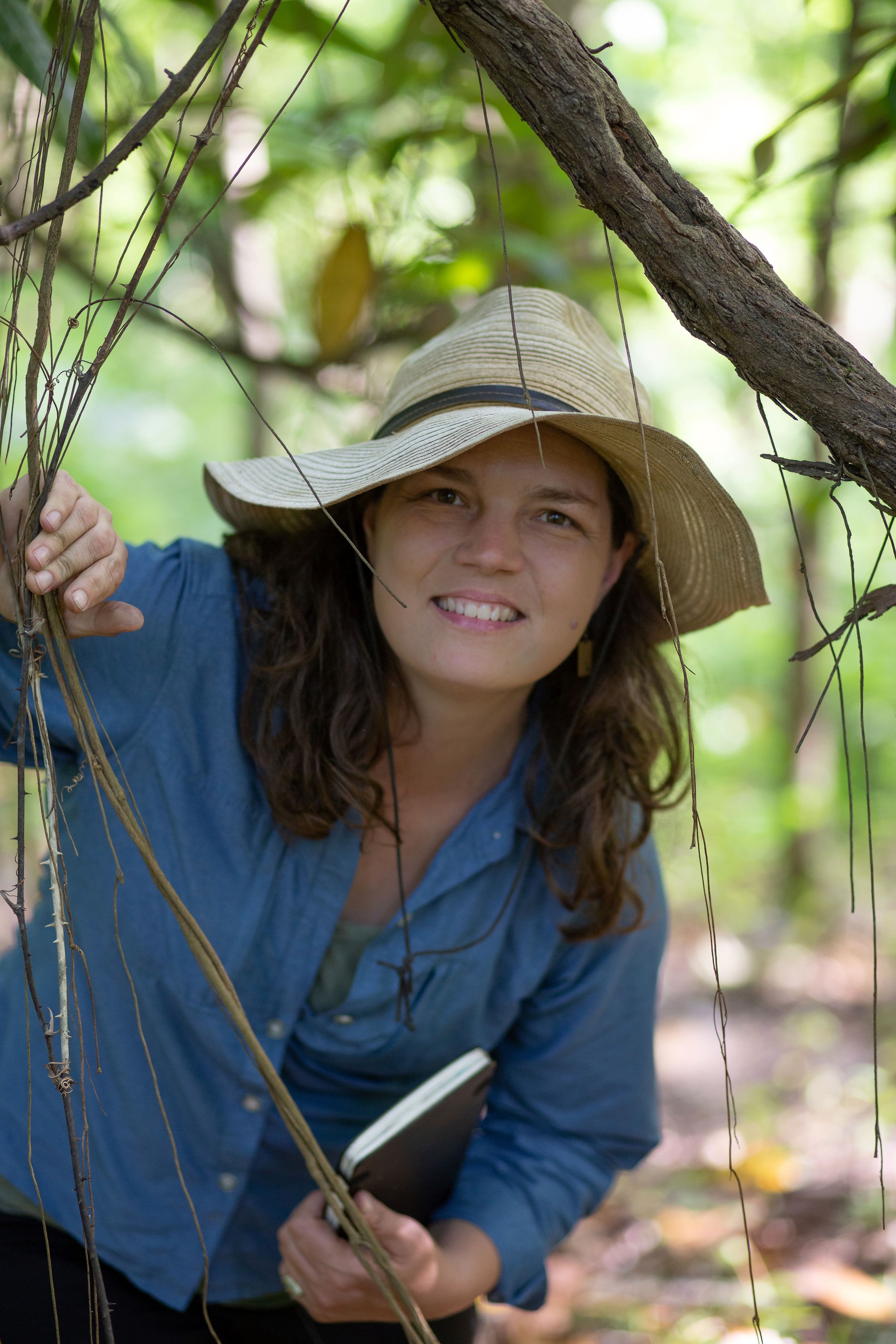
Robin Whitfield
Robin is a Mississippi artist whose mission is to connect to nature and help others do the same. Her creative work begins with observations of nature in rivers, swamps and forests. Her paintings are poetic explorations of visual and ecological relationships. Robin works on paper with traditional watercolors or directly with foraged plant & mineral pigments. Robin graduated from Delta State University in 1996 with a BFA in painting. She gives creative workshops and exhibits her work where art, nature and conservation overlap. In 2018 she founded the non-profit Friends of Chakchiuma Swamp to manage and interpret Lee Tartt Nature Preserve located near her downtown studio. She is currently serving as executive director. Robin Whitfield lives and works from her studio in Grenada, Mississippi. www.robinwhitfield.com
Marc Williams
Ethnobiologist Marc Williams has taught hundreds of classes to thousands of people about plants, humans, other life forms and their interface. His training includes a B.A. in Environmental Studies/Sustainable Agriculture from Warren Wilson College with a minor in Business and a M.A. in Appalachian Studies/Sustainable Development from Appalachian State University with a minor in Planning/Geography. He has over 20 years of experiences working at various restaurants, farms, and travels throughout 30 countries in Central/North/South America, Europe and all 50 states in the USA. More information can be found at www.botanyeveryday.com and www.plantsandhealers.org.
Loy Xingwen
Dr. Loy Xingwen is the Ecology Research Scientist at the Atlanta Botanical Garden’s Southeastern Center for Conservation. The Center’s mission is to conserve imperiled plants and natural communities through innovative strategies and partnerships. Loy conducts ecology research to help plant conservationists find solutions for ongoing biodiversity declines. He has been working with plants for 18 years. Loy trained in horticulture in his home country of Singapore, received his Bachelor's in botany from the University of Queensland in Australia, and received his PhD in ecology from Emory University in Atlanta, GA.
Jeffrey Zahner
Jeff grew up in Highlands, NC, and has spent most of his life outdoors, developing a deep appreciation and knowledge of the southern Blue Ridge. A lifelong interest in botany and gardening led to a degree in Horticulture from Clemson University, and eventually the start of Chattooga Gardens Nursery, a garden center in Cashiers, NC. For over forty years, Jeff has been working with the rare Oconee Bells (Shortia galacifolia), learning its needs in propagation and production, making it available to gardeners in the region. A long-time contributor to the Cullowhee Native Plant Conference, Jeff has been leading field trips for over 20 years and is a true believer in the power of nature education. Looking to the future, with development of natural areas increasing over the region, Jeff has served on the board of the Highlands-Cashiers Land Trust for many years, working to protect land wherever possible.
